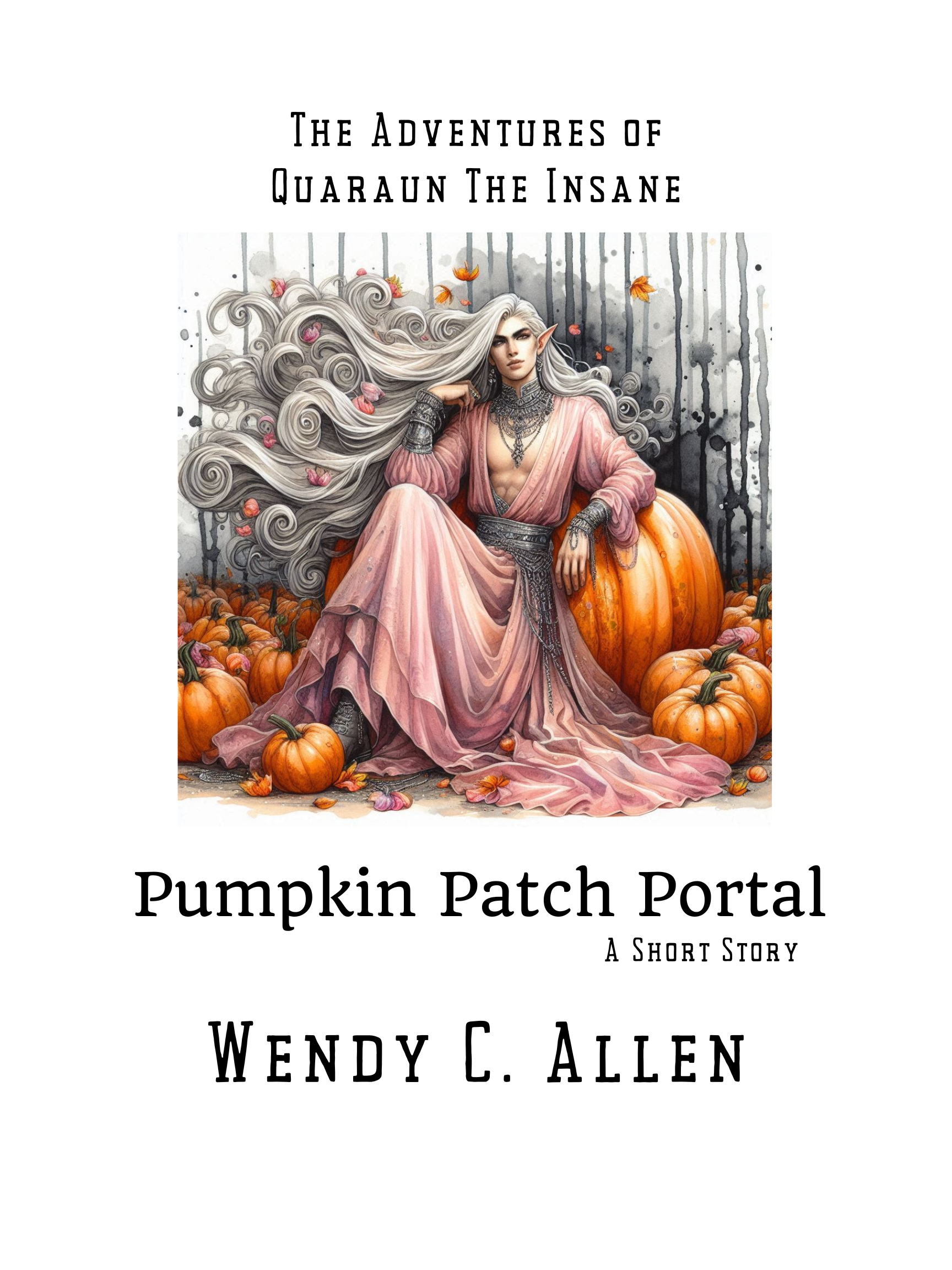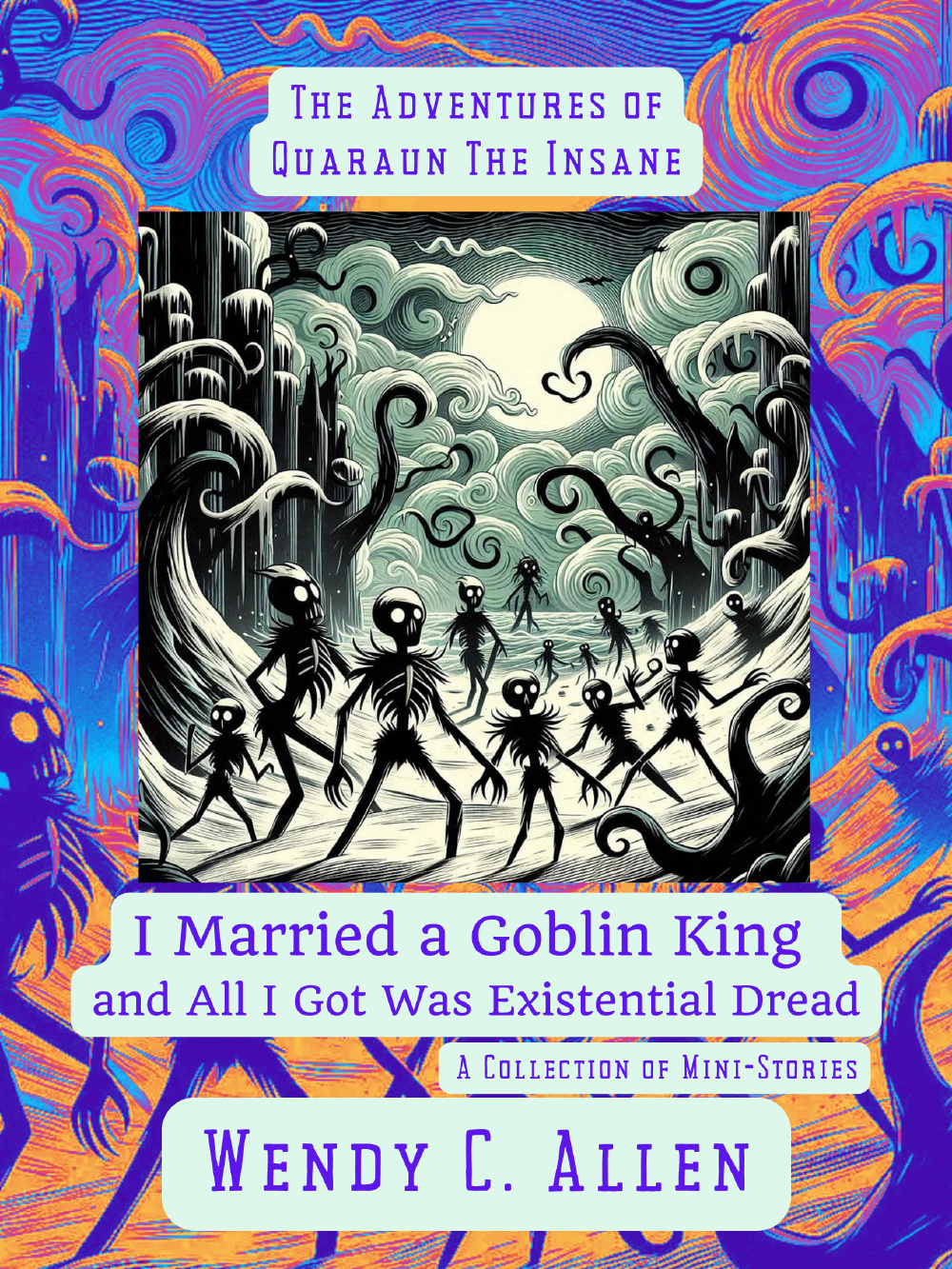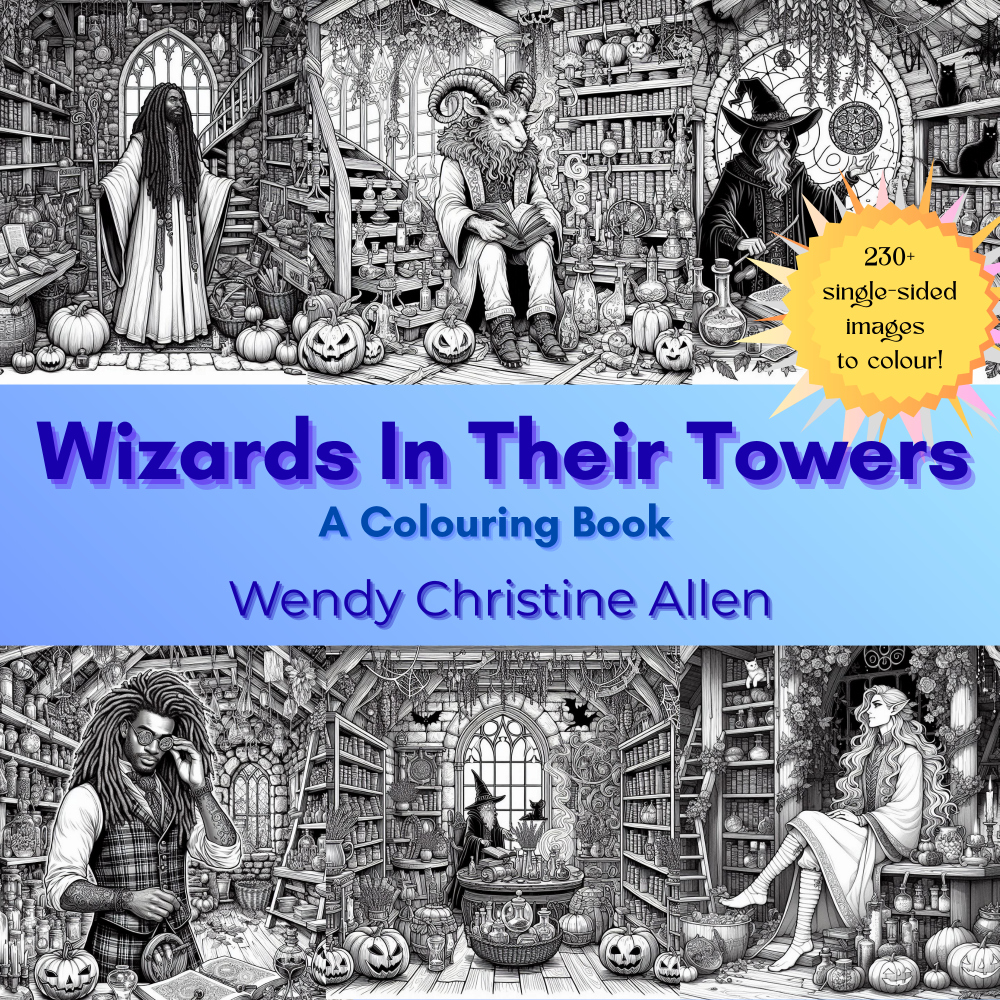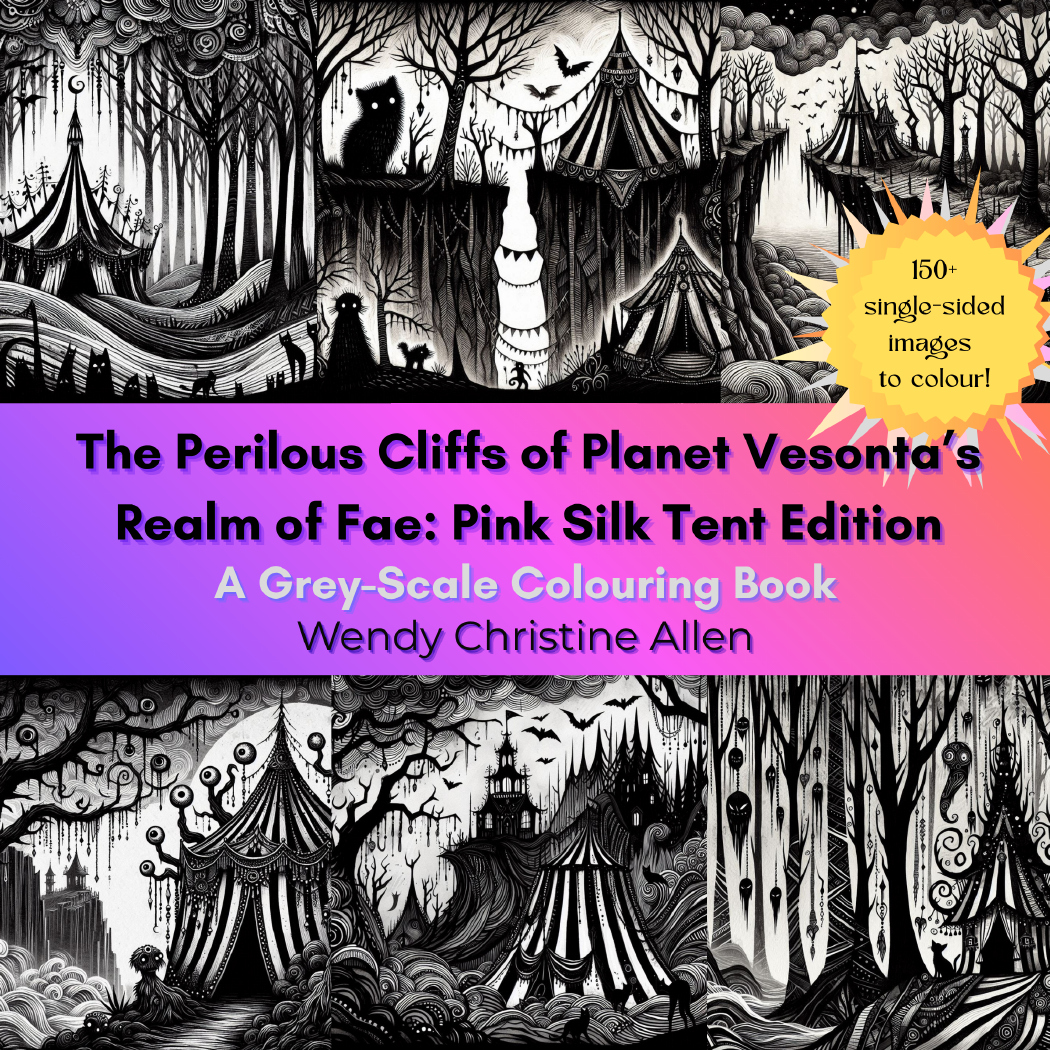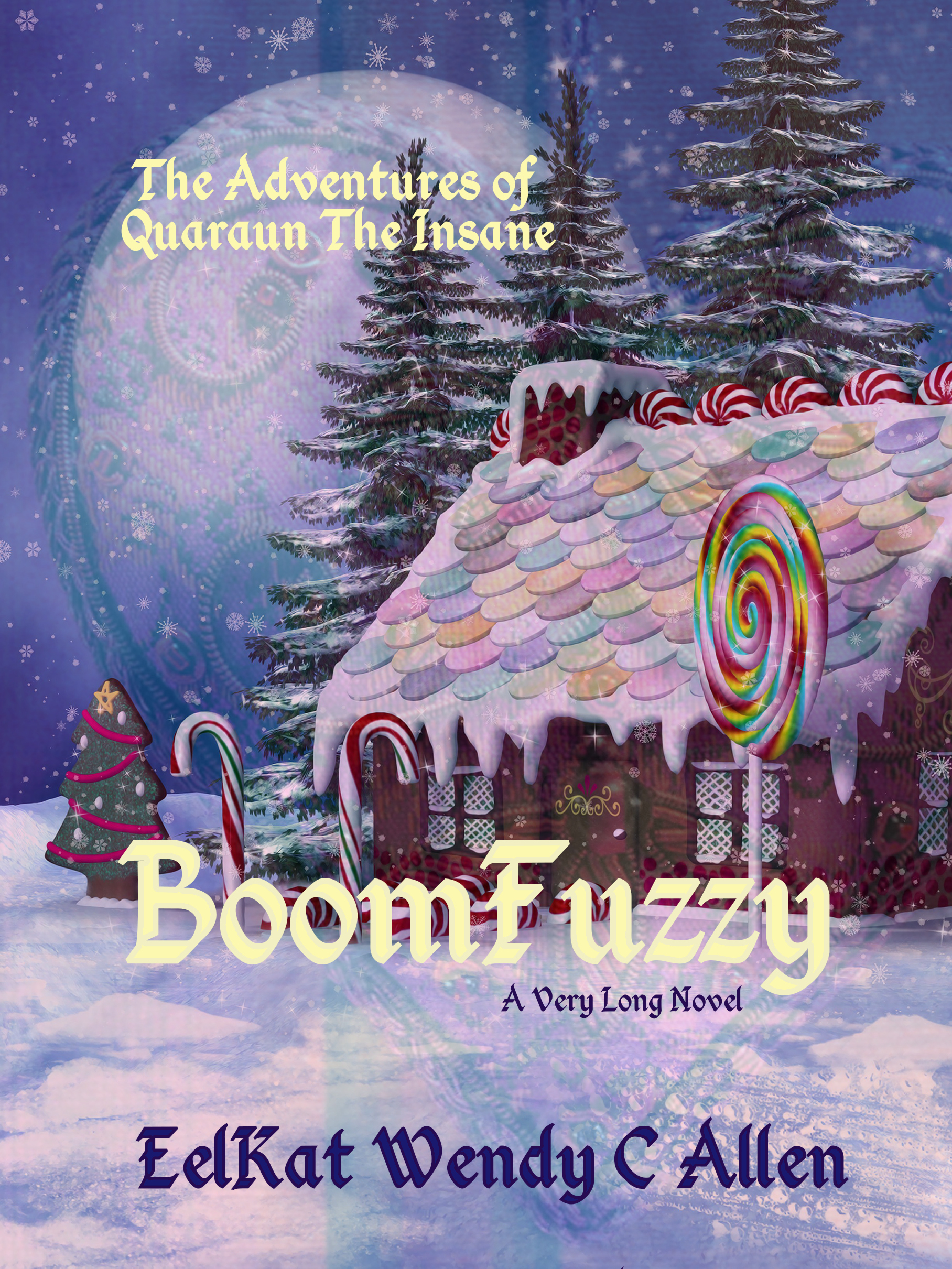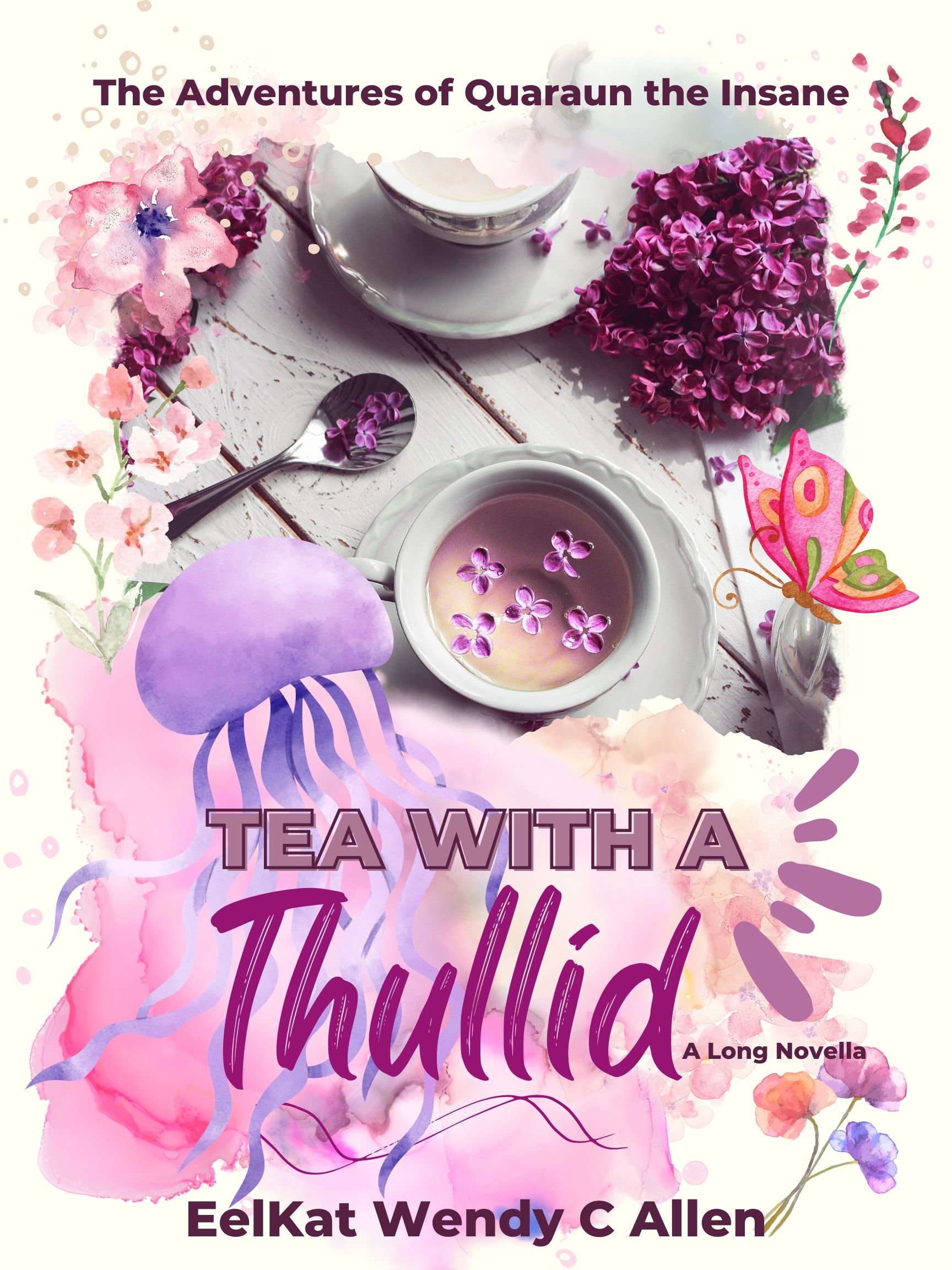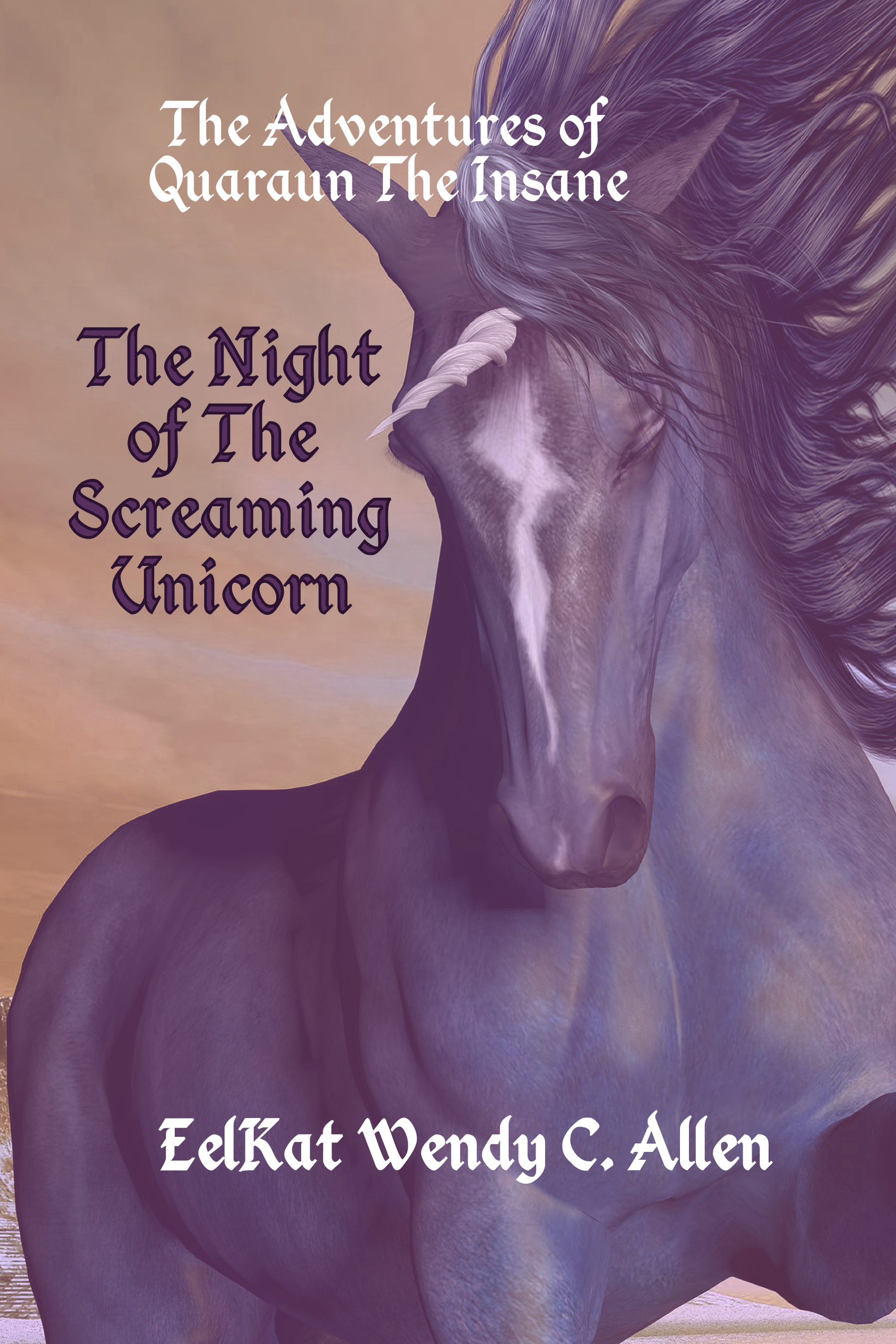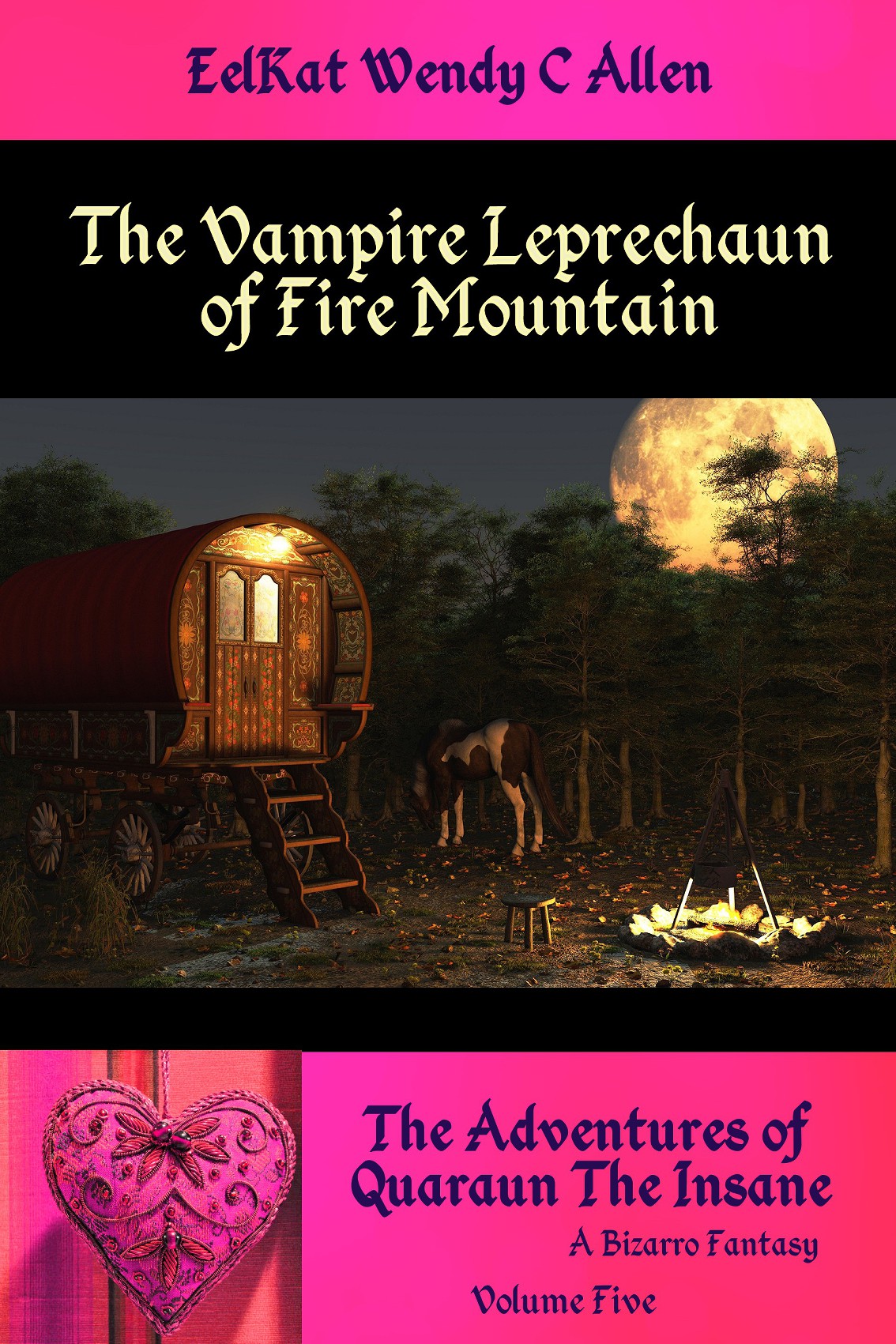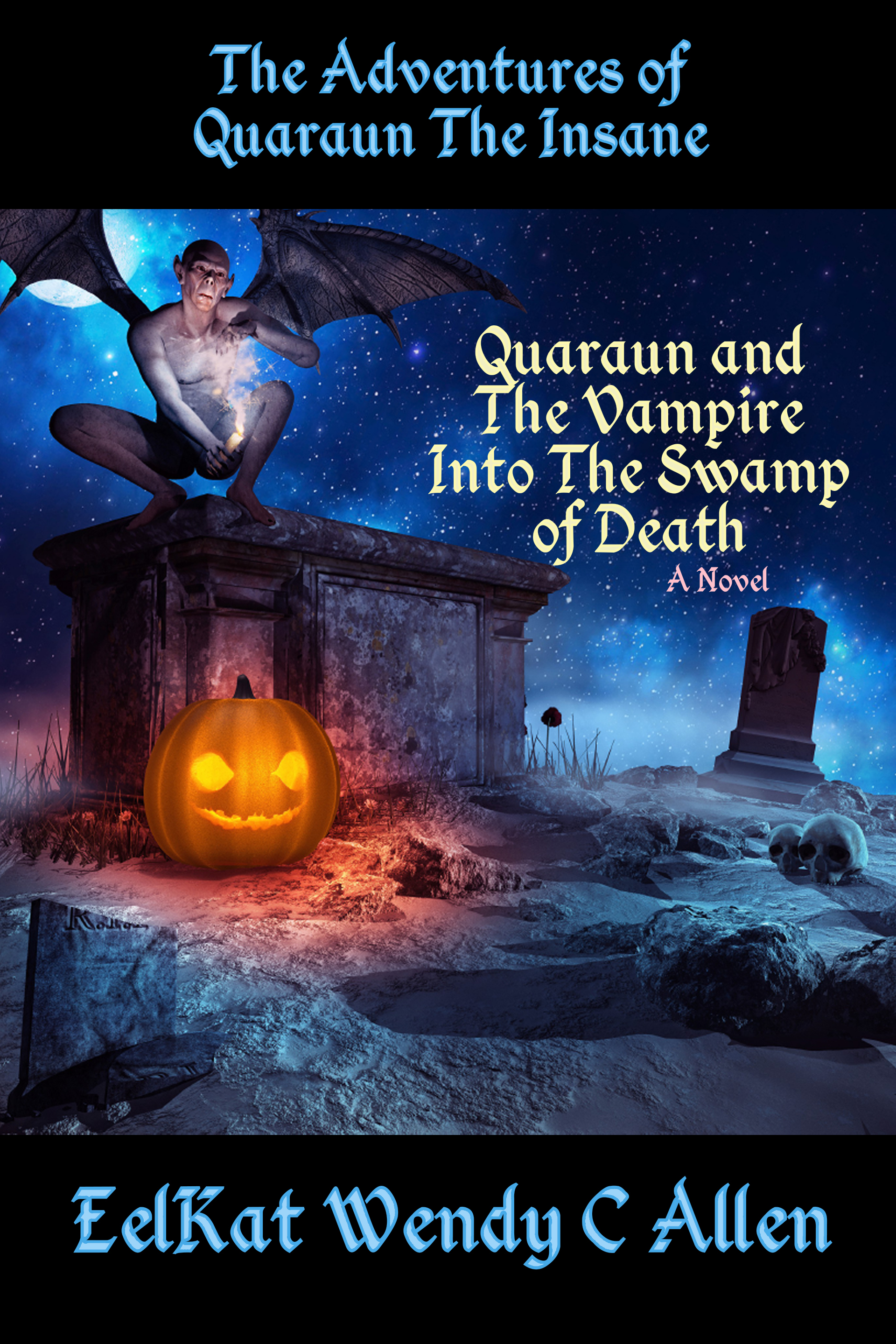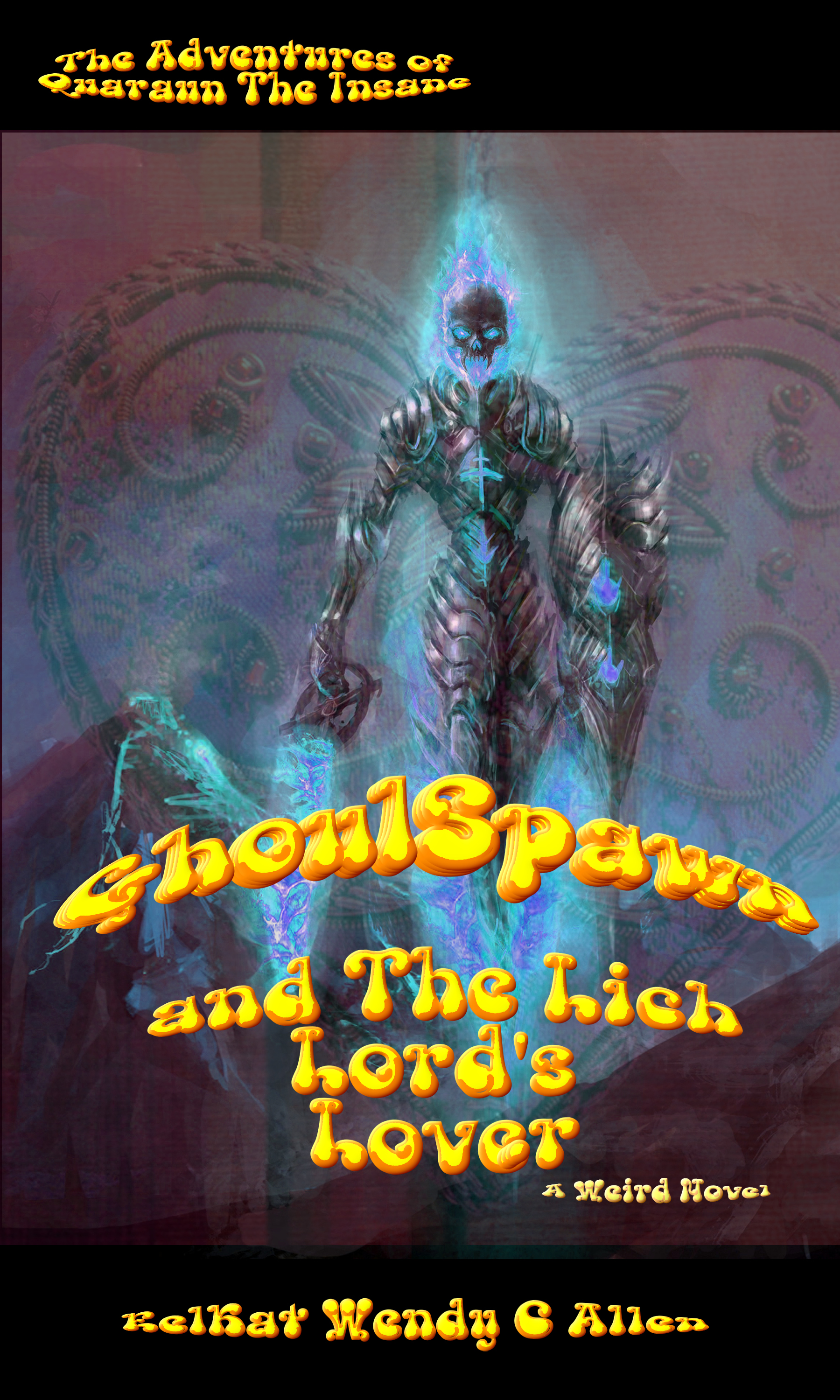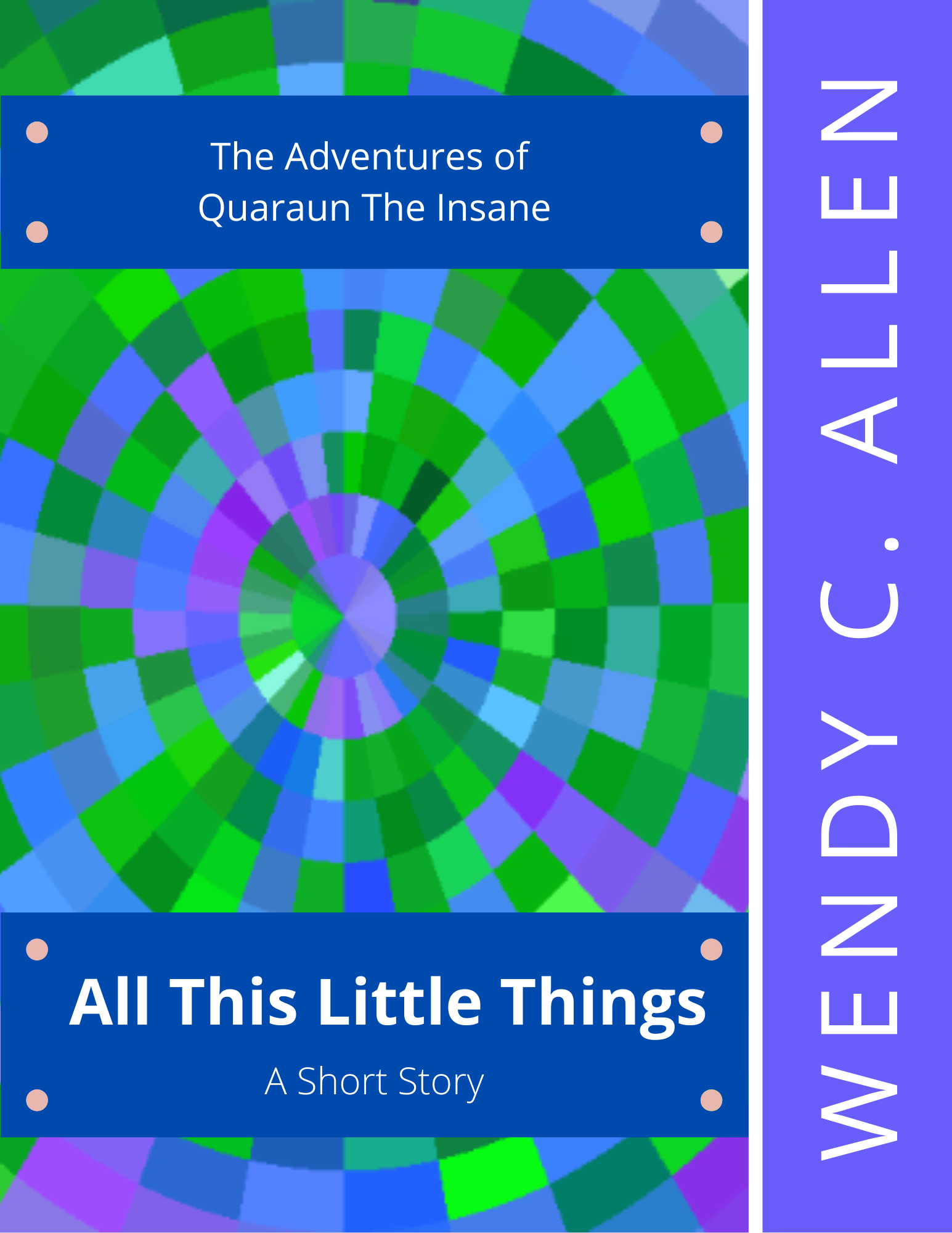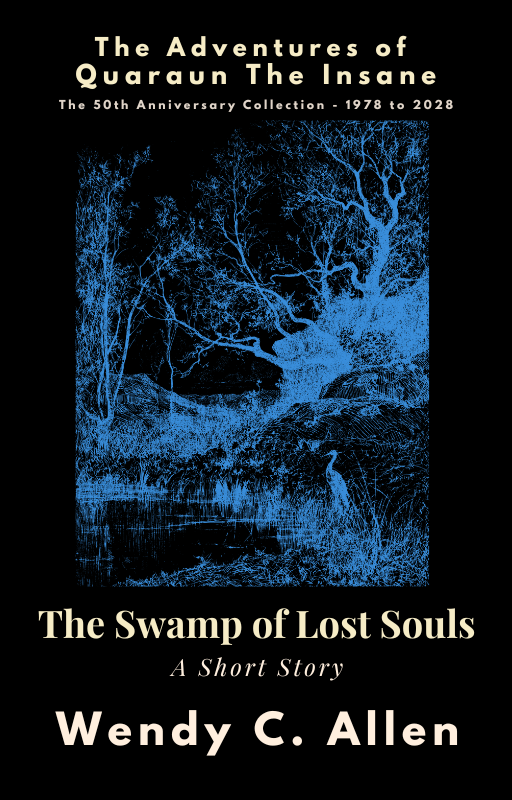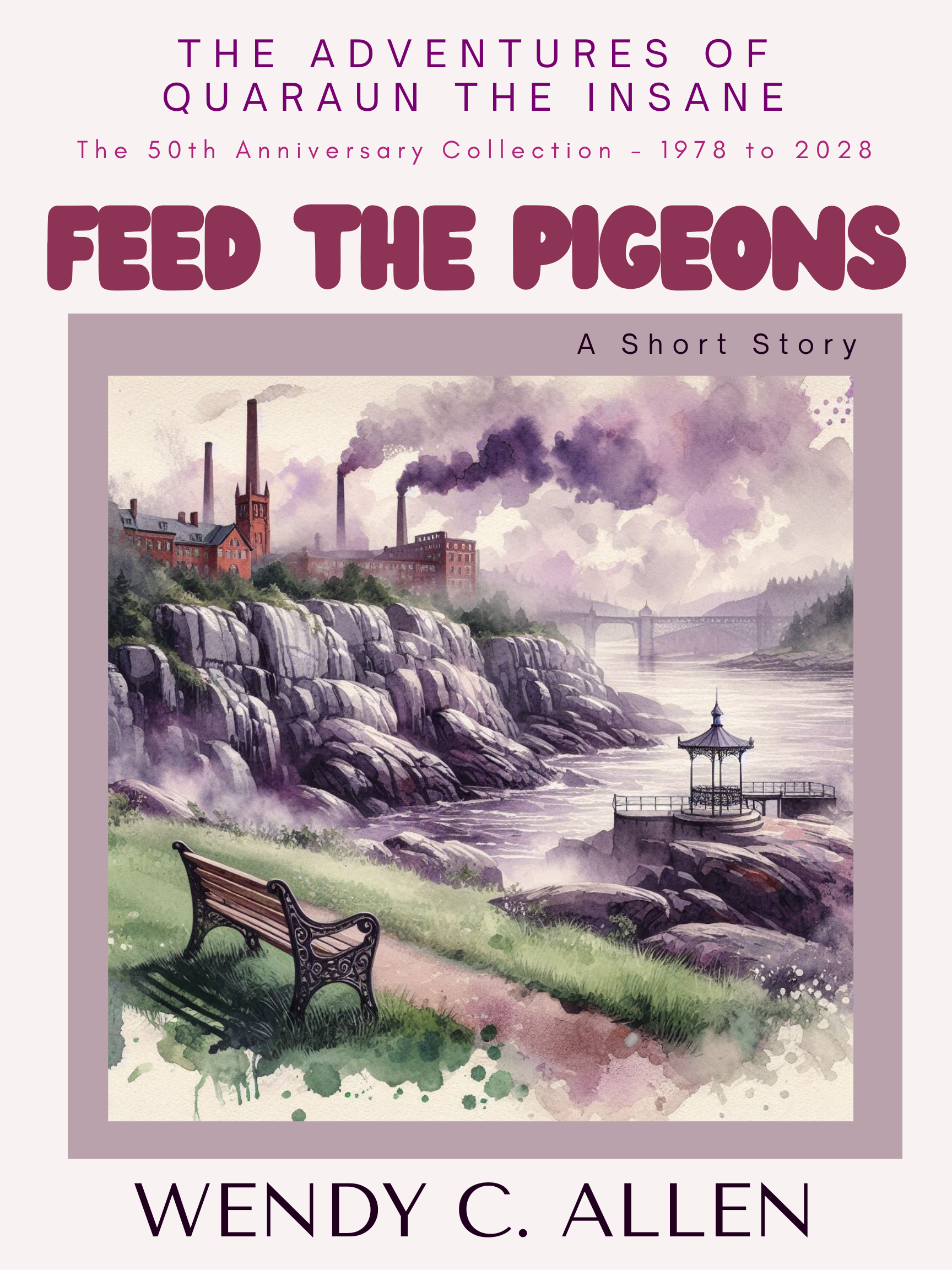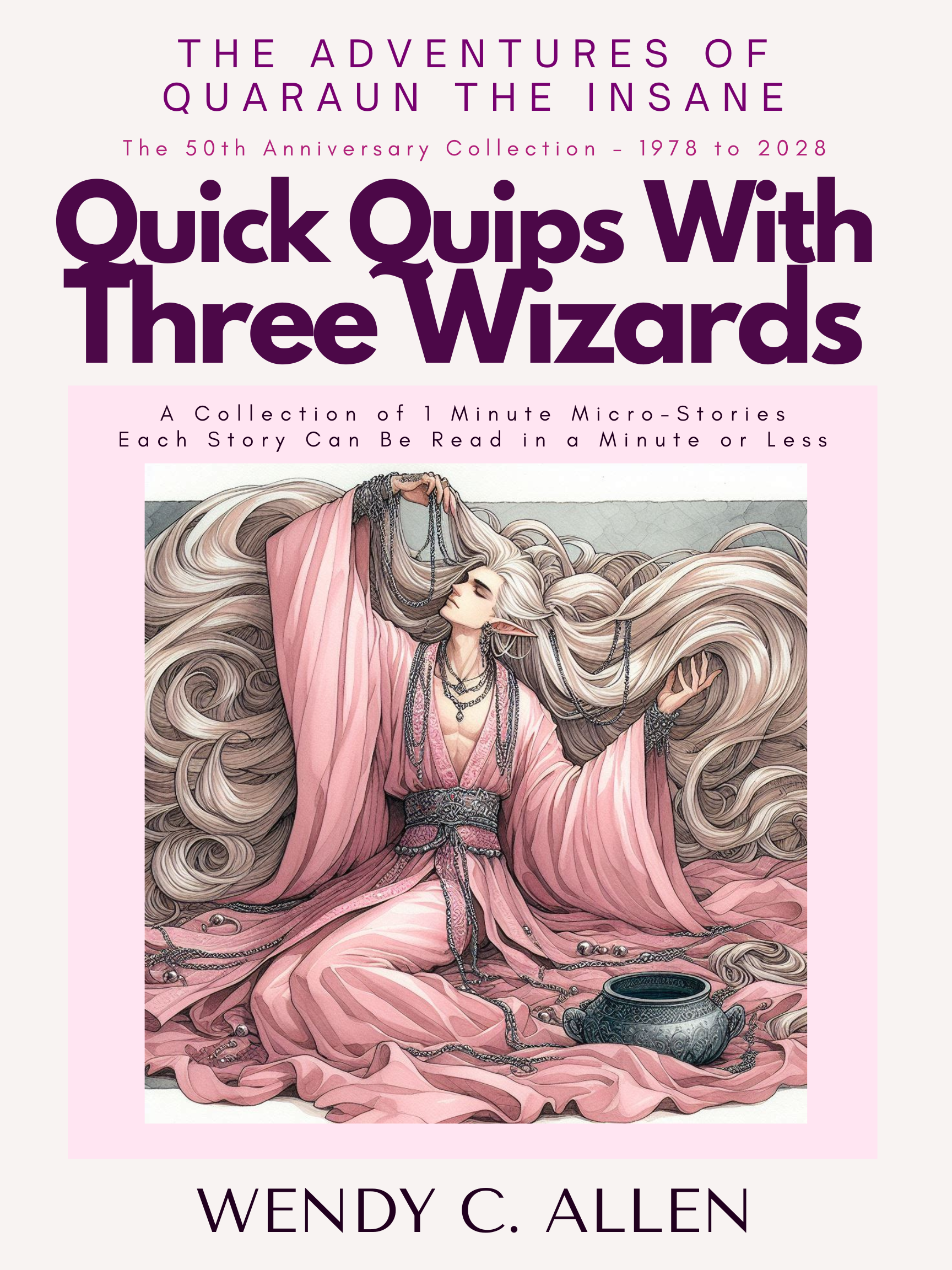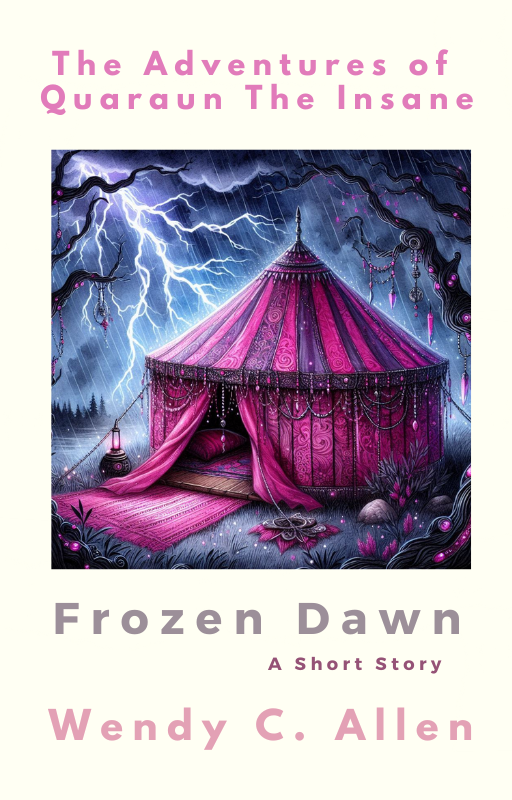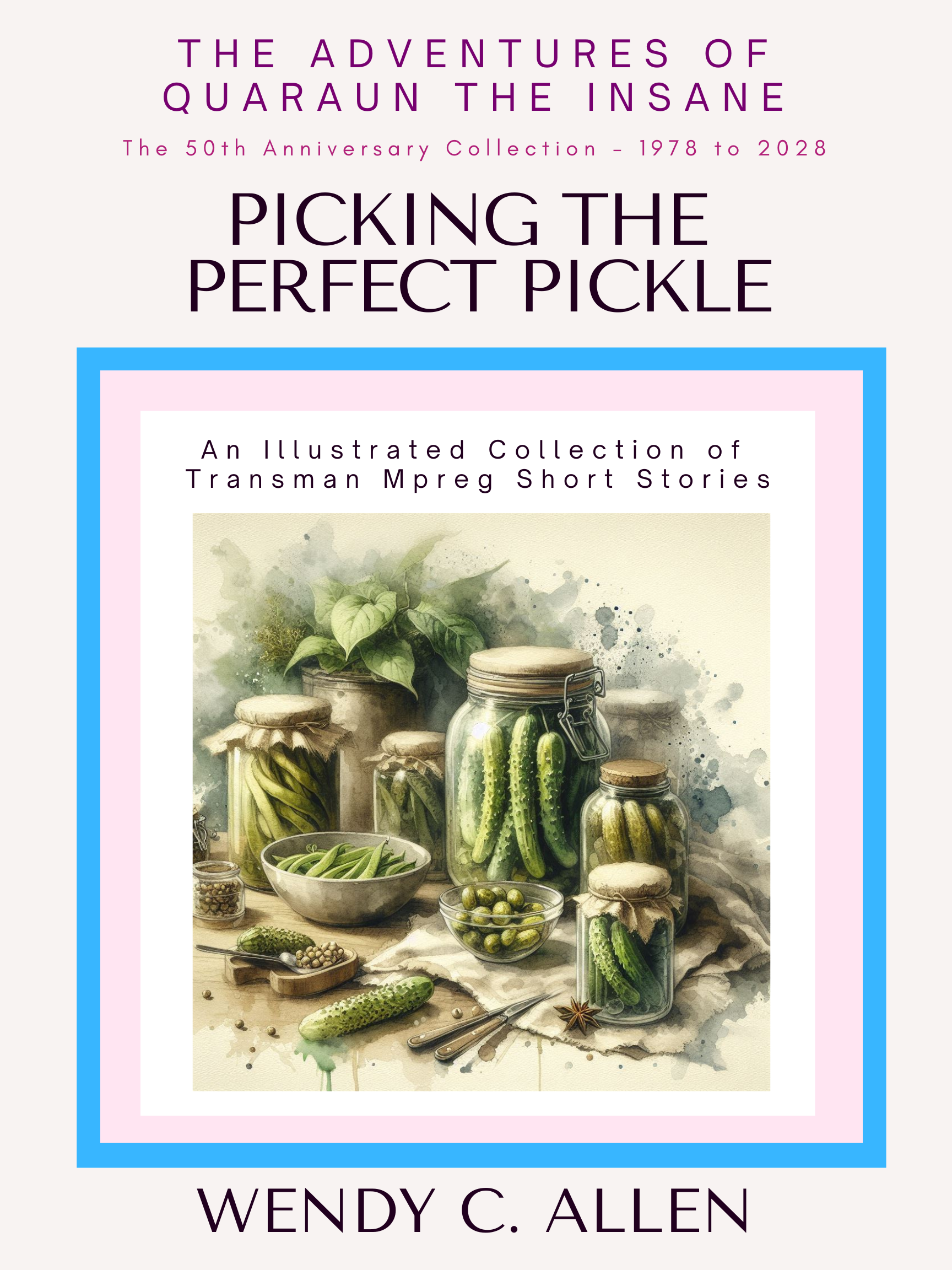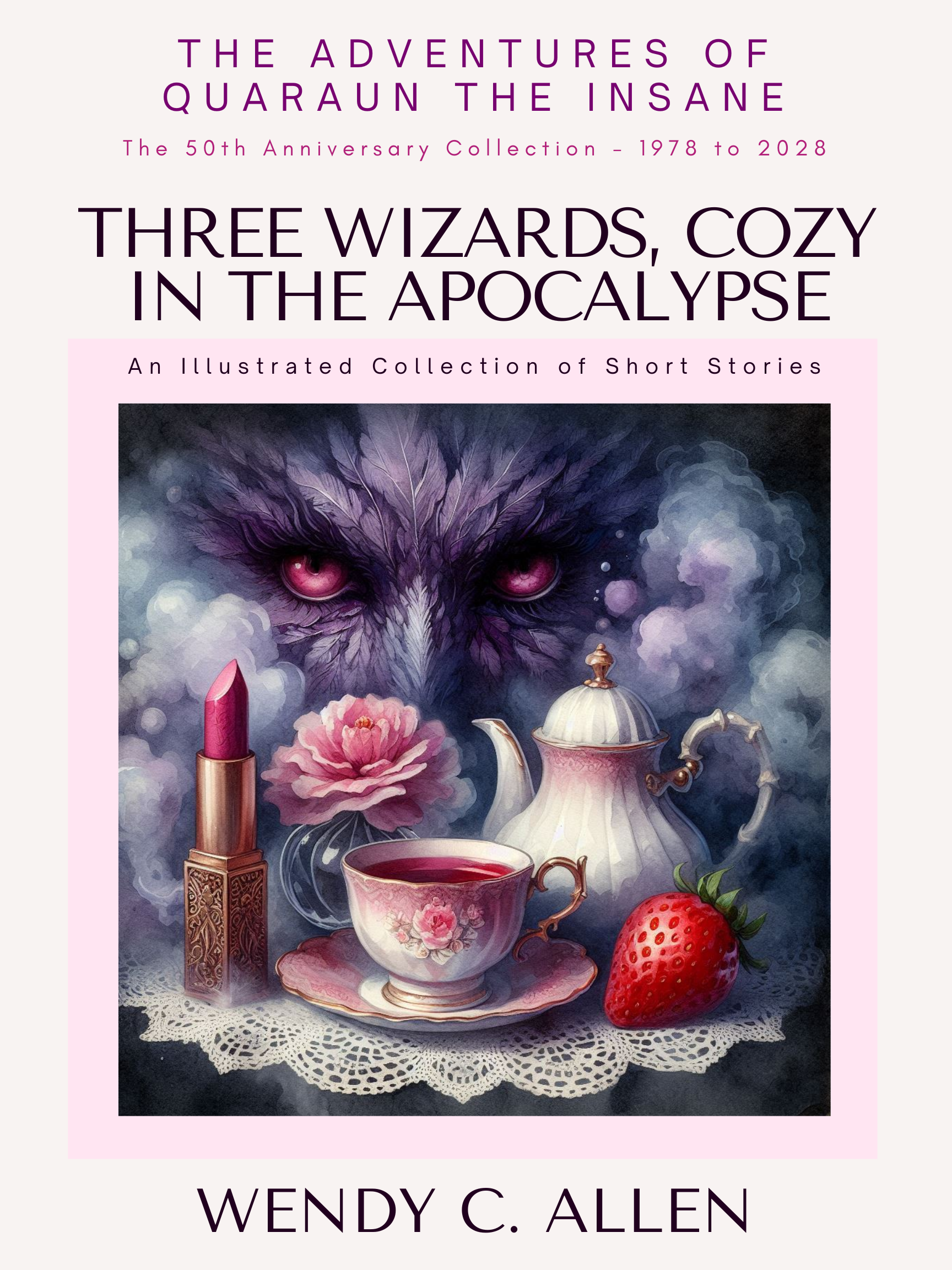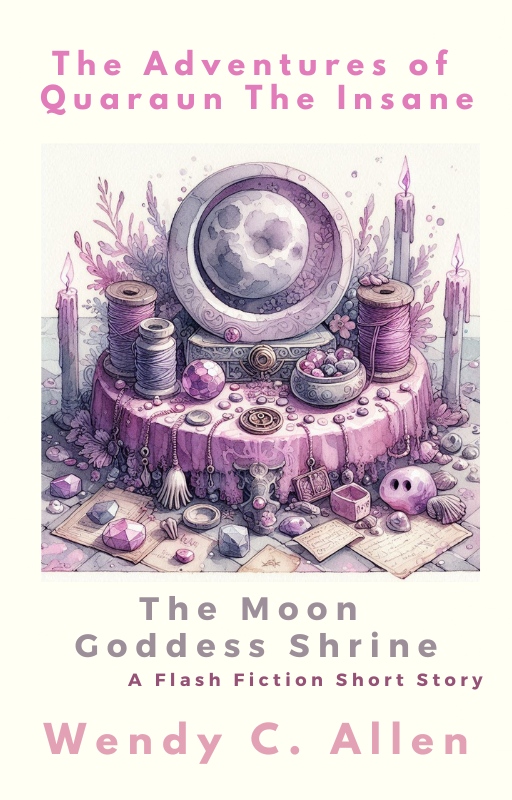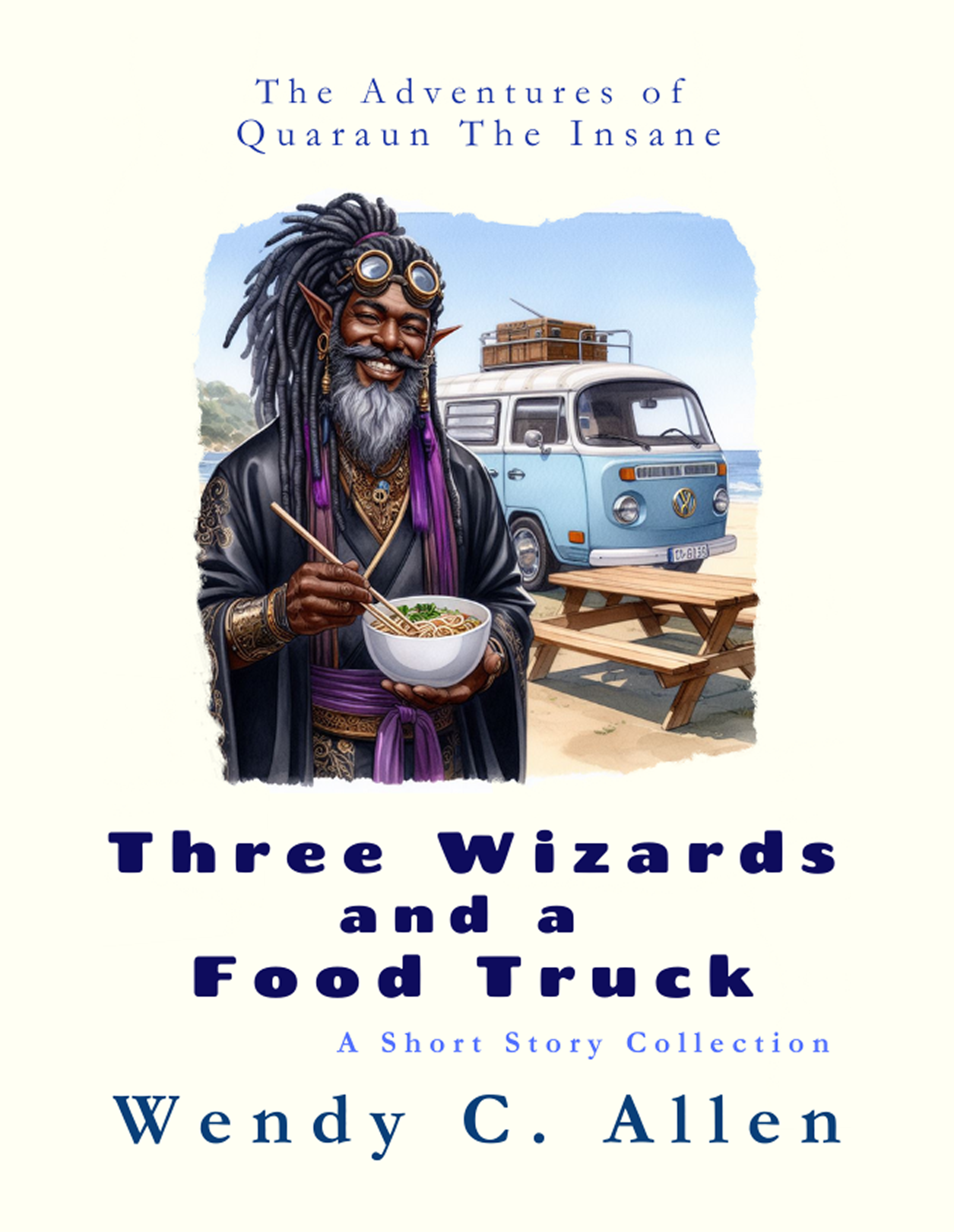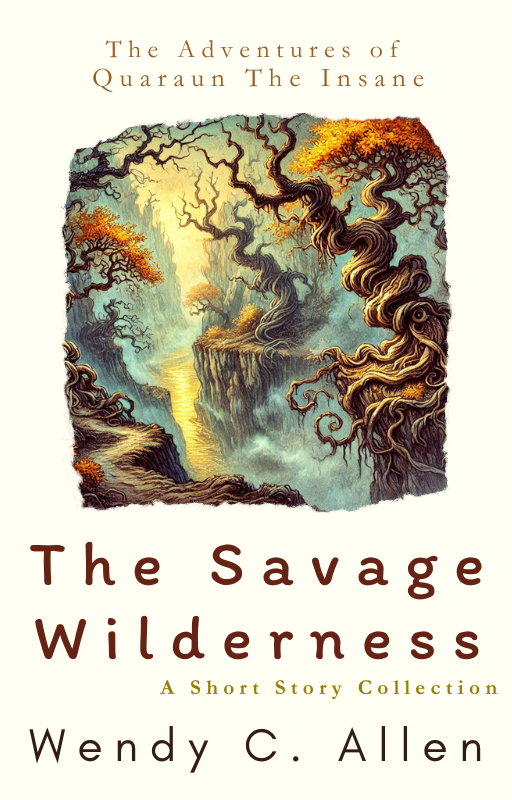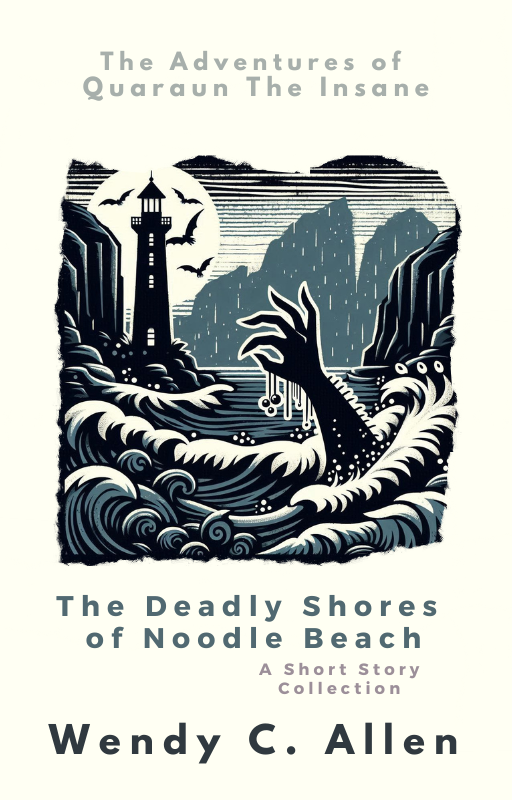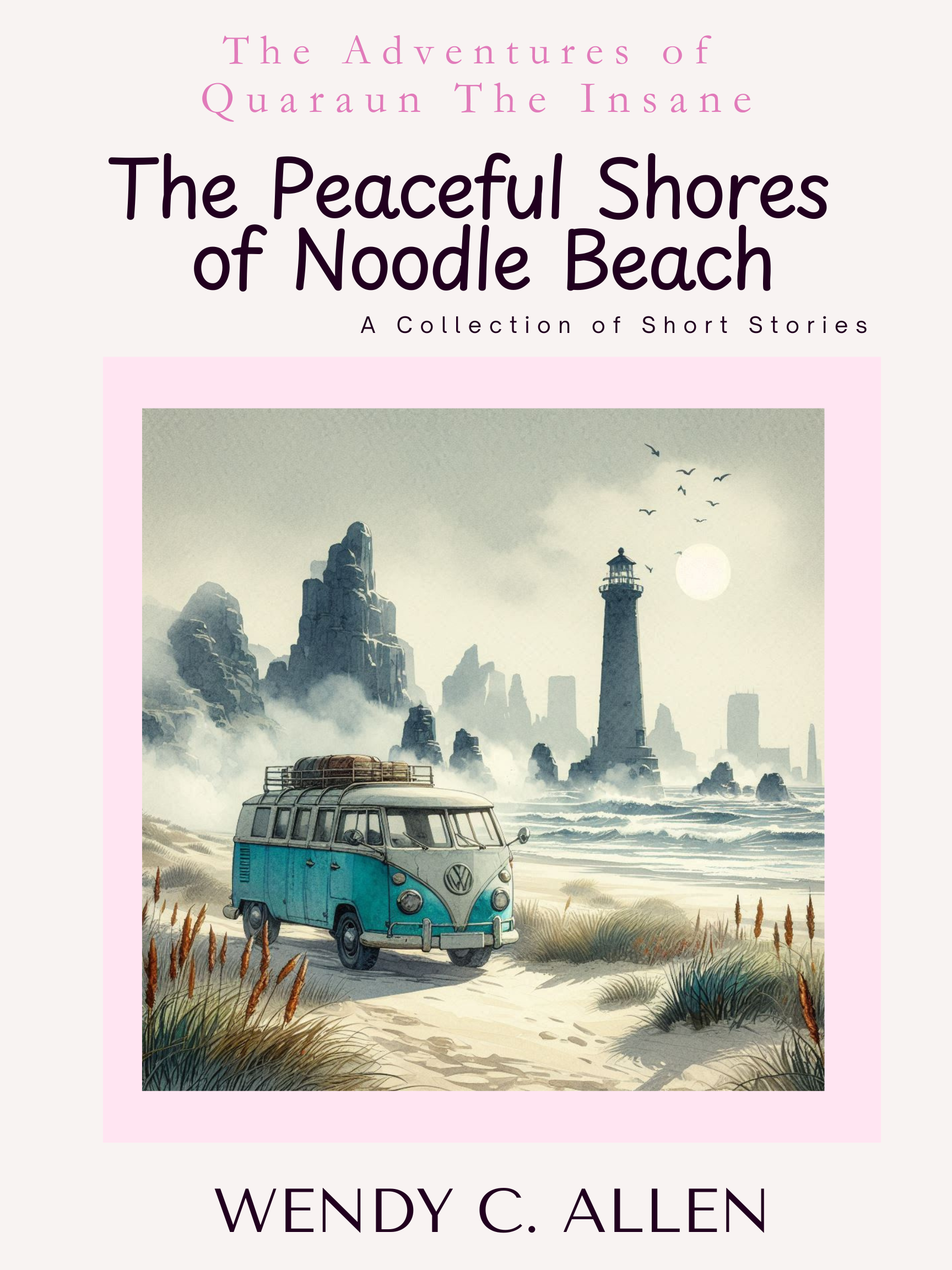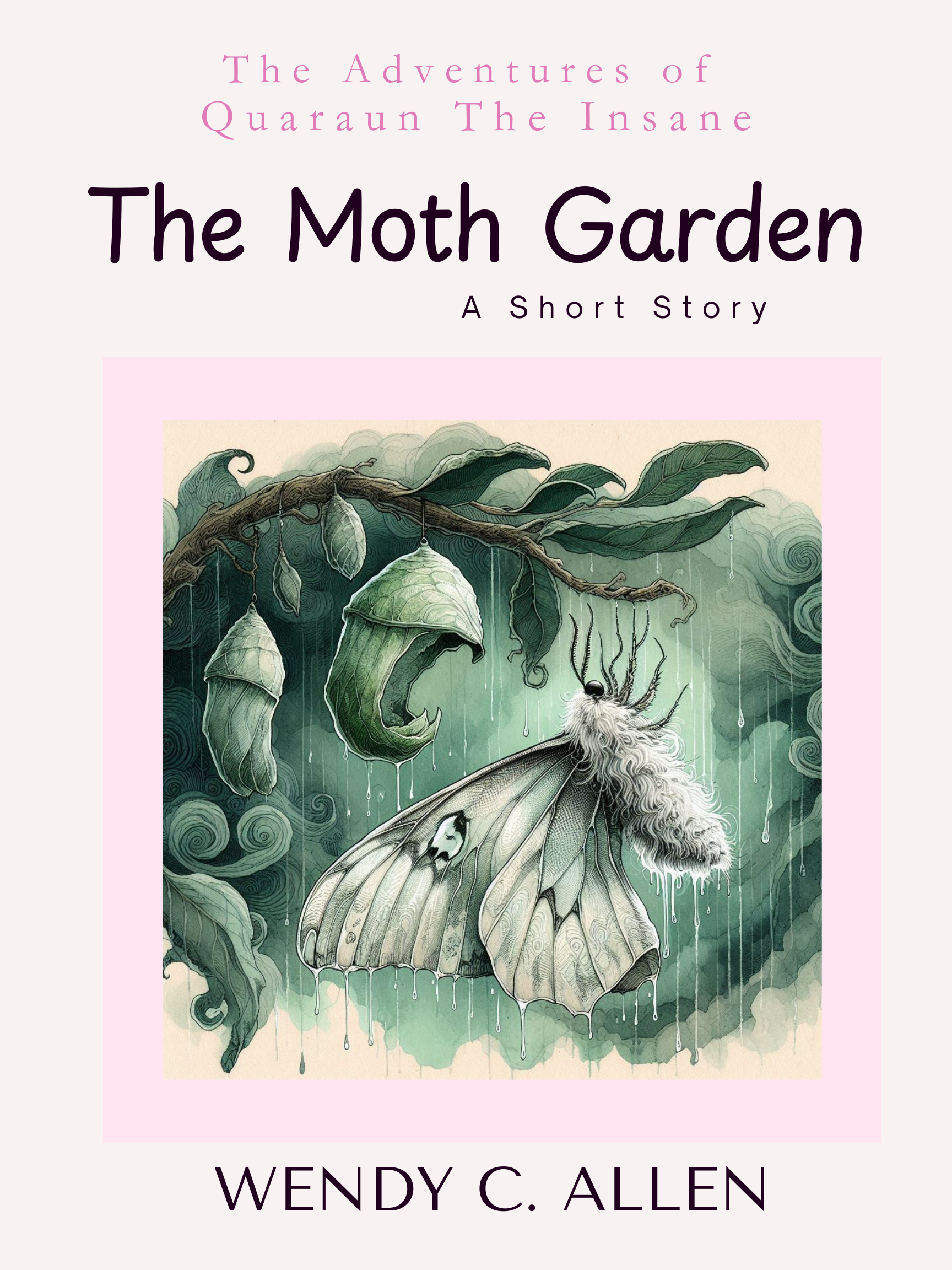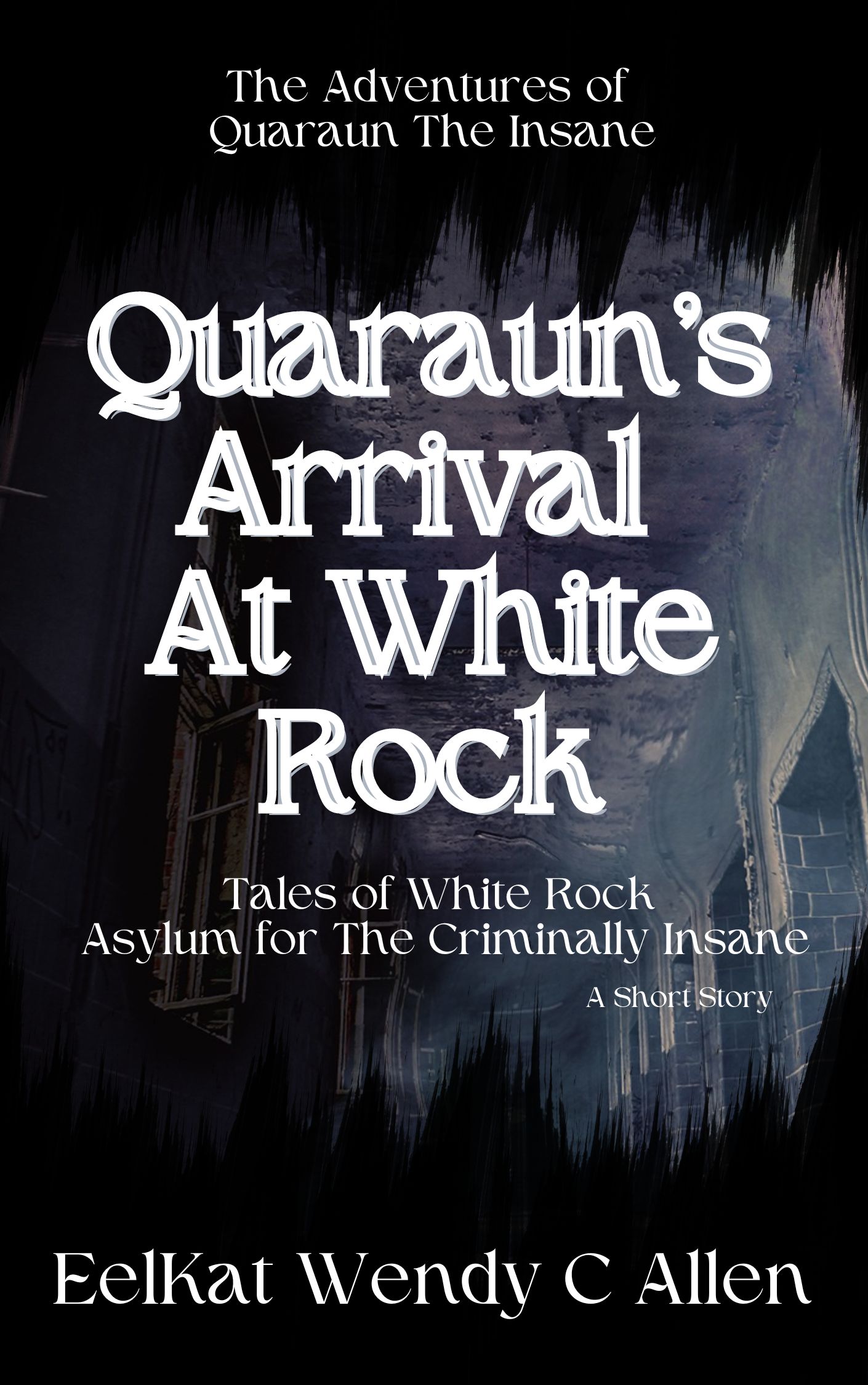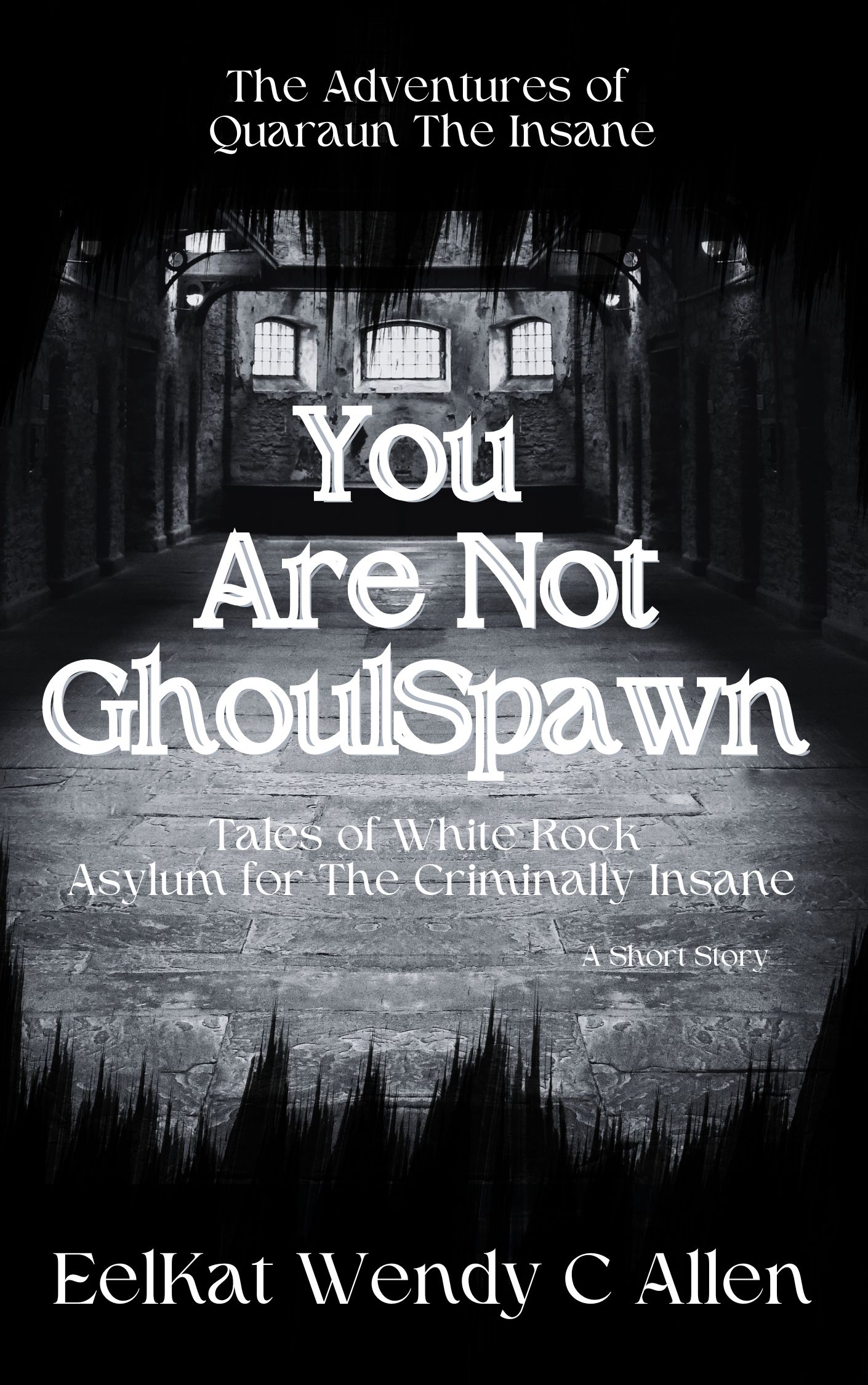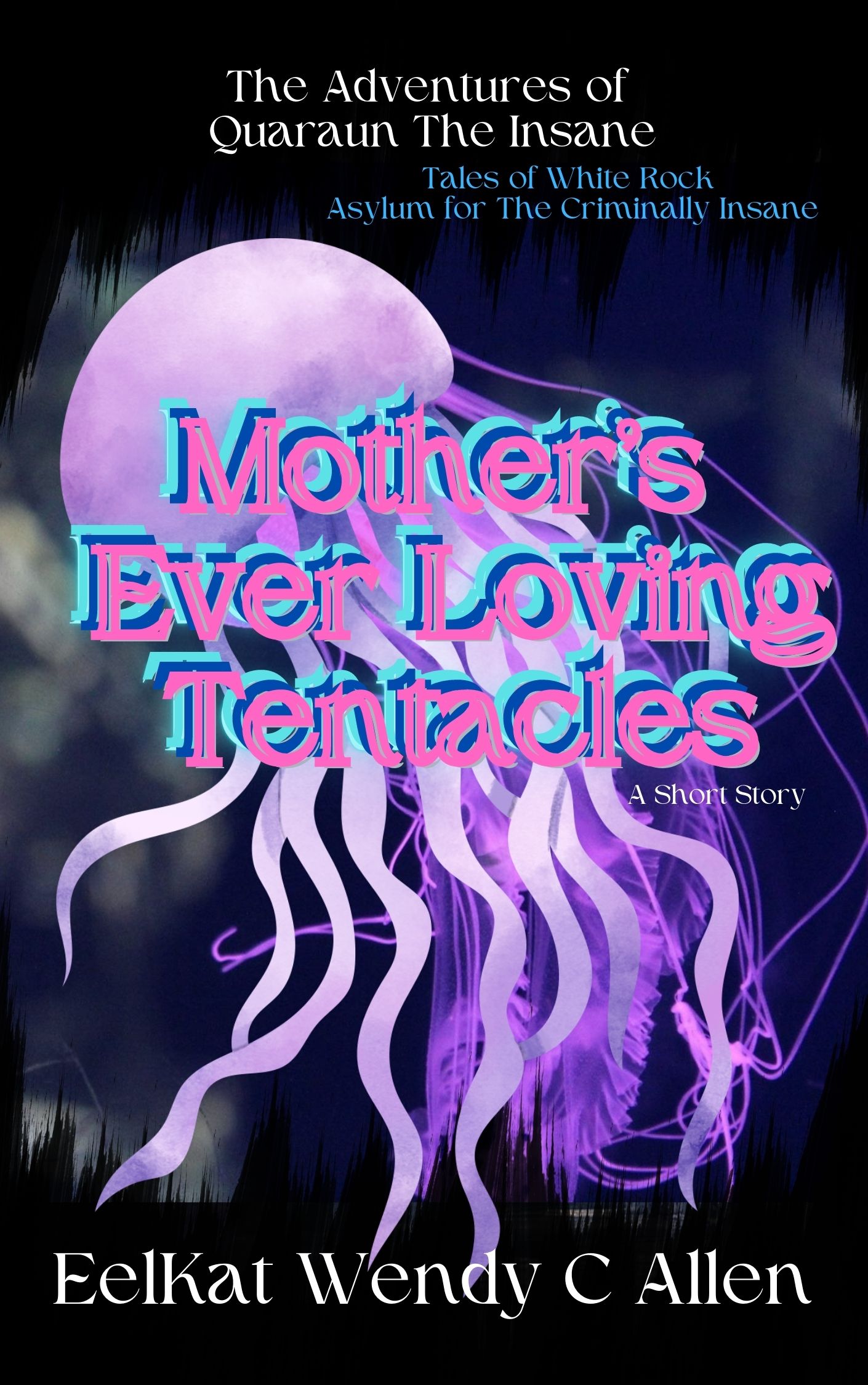Counting Down to the 2028 50th Anniversary of my first published book (September 23, 1978)
|
I am an author. I write Yaoi. This is my website. Yaoi means my main characters are gay lovers. If that bothers you, you're on the wrong website. Sorry.  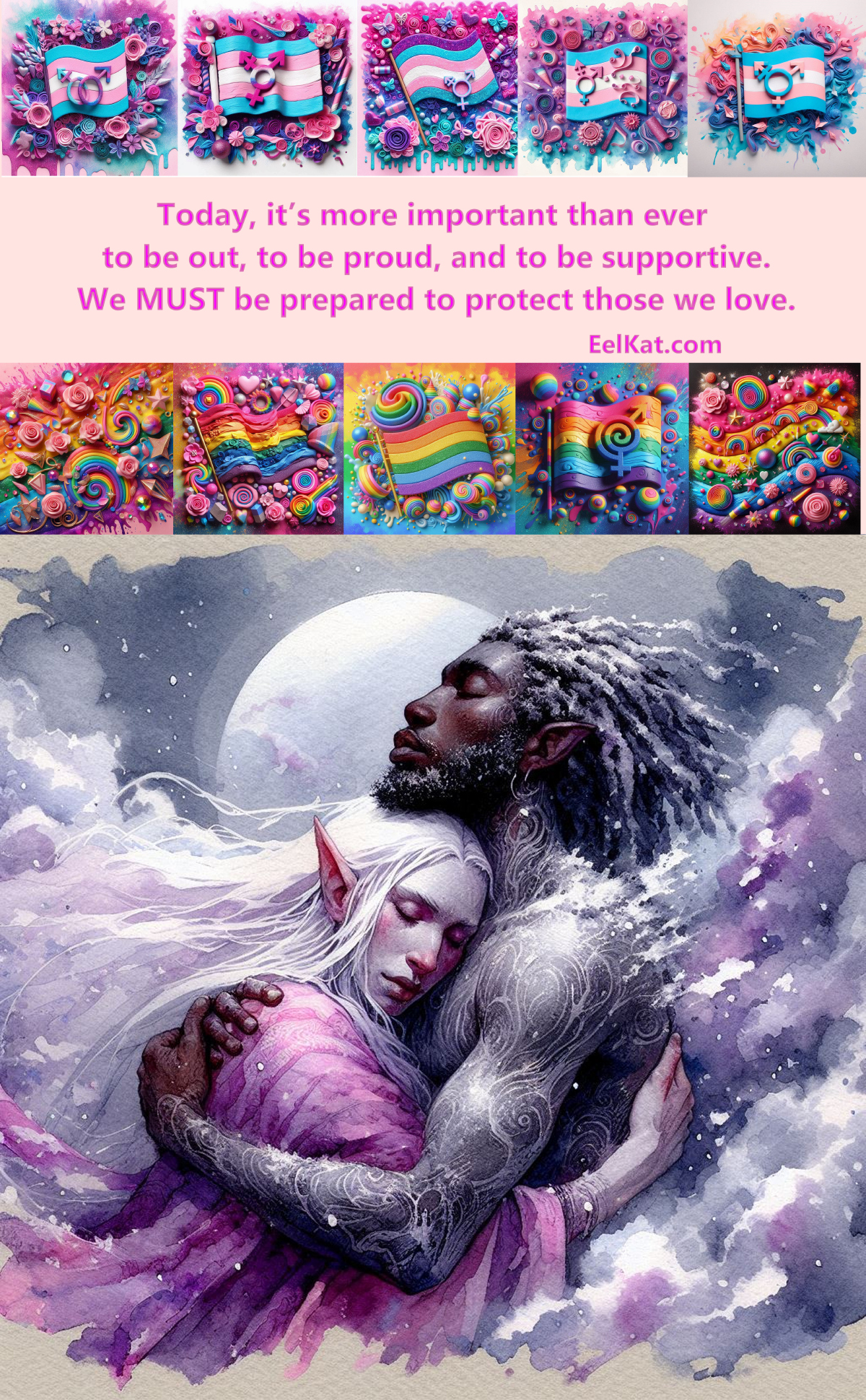 Transman Quaraun (The Pink Necromancer) and his husband King Gwallmaic (aka BoomFuzzy the Unicorn) King of The UnSeelie Court. Main characters of The Adventures of The Pink Necromancer series. Transman Quaraun (The Pink Necromancer) and his husband King Gwallmaic (aka BoomFuzzy the Unicorn) King of The UnSeelie Court. Main characters of The Adventures of The Pink Necromancer series.
|
This website is a safe zone for LGBTQAI+, pagans, polys, trans, neurodivergent, disabled, mobile aid user, minority, cosplayers, otherkin, furries, & BIOPIC communities.
If you are a hater, you can go fuck yourself.
Happy 2026!
It is our 30th anniversary here at Space Dock 13!
On the web since 1996!
You have encountered an extremely old website that continues to exist in old web ways, the same way it has done for now three decades.
In spite of being now 30 years old this year, started in 1996, it is still heavily active and old pages updated daily, new pages added daily, still now in 2026. All hand written, all hand coded (no AI), all by me, same as it ever was.
We Still Exist: The Old Web Did Not Go Away, You Just Forgot How To Find Us
|
This site was NOT designed for mobile devices (as they had not been invented yet when I created it) thus this site looks best on a computer, at 1280x768 or above. |
This is a very old website created in 1996, so, yes, javascript is needed for the site to work as it should. If things don't function, you may need to update javascript drivers on your device |
This site tries to be mobile friendly but it's been online since 1996, so old pages may not load right on mobile devices, and as this site has had pages added near daily for 30 years there are now over 20k pages here. |
Having started out in life as a GeoCities site, this site contains glitter, bright colours, blinkies, moving gifs, and other things the old web was known for. |
People Who Don't Write Giving Bad Writing Advice
The thing that always gets me, is when a bunch of unpublished writers are giving very BAD advice, and a published author who knows better, comes along and points out that the advice being given won't work because of whatever, and then they give actual examples of what worked vs what didn't... and the whole kit and kaboodle of unpubbed writers attack the published author, because in their own words "you're just showing off that you got published and we didn't" :(

I can never understand the need for those who don't know how to do a thing, to parrot bad advice they overheard said by others who also don't know how to do it, but you seem to find this sort of attitude in any topic, not just writing. Go to fish forums, and you find people who never raised a beta, giving advice on how to raise a beta, simply because they overheard someone else say the thing... in that case, the advice is often so bad that it will actually cause the fish's death too. But then when an actual beta breeder comes in and says: "No, that's wrong it'll kill this fish, don't do that, do this" all of a sudden the betta breeder gets gained up on attacked by the people giving the bad advice.
Do any of you read r/pubtips ? Last week a guy asked for advice on finding an agent... and an actual agent, came on and answered him, told him how she looks for authors to represent, and she got attacked! By people who were not agents and did not have agents!
Over on the BDSM subs, you constantly see users giving "joke" advice on EXTREMELY dangerous things to try --- things that could actually kill people. Then when people who live the lifestyle point out: "No that's dangerous because of...." The fako BDSMers attack them by saying "No, I know you can do this because I read it in 50 Shades of Grey". Do these people not know the difference between reality and fiction?
Yes, I started reading those because I'm trying to figure out why people were calling me a BDSM dominatrix. You know, the people who call me that, I don't think they actually know what BDSM is.
I don't think it matters what topic it is. I think you are going to find this sort of thing happen in every career.
It's like the get-rich-quick books that are written by people hoping to get rich from writing get-rich-quick books. LOL!
I don't know... I just see this sort of "know-it-alls who know nothing" giving bad advice, and then ganging up on "professionals in the career" who actually give the correct advice.
I just don't understand why it happens.
I don't understand why people who know nothing of a topic try to give advice on it. They are bold faced liars, and I can't understand what type of mentality would see nothing wrong with telling a lie.
And I don't understand why when someone who actually knows the answer, comes along and answers, why the fakers gang up on them. I can't understand this sort of anger filled mentality either.
I just find it so weird. It's this weird herd mentality thing that I just can not wrap my mind around at all.
That said...
I find that most people seem to be giving advice based on personal experiences of stuff that they tried that either worked or didn't work for them and are not so much giving advice so much as just sharing their personal experiences in the topic at hand. The people willfully giving bad advice seem to be in the minority, and while every topic has them, they are not the majority.
I can't stand most writing advice I find online.
I can't stand most writing advice I find online. from writing
I can't stand most writing advice I find online.
Normally, I answer a question like this, simply giving an answer.
However, I had errands to run, so left the computer with this question open. I came back a few hours later to find it had 140 comments, about half of then written by the OP in response to the replies.
Ouch!
Snark feast supreme.
The OP is troll. Big time.
I've since gone to the OPs profile and checked out their older posts and comments.
The OP has a history of starting "controversial" threads, then lashing out viciously at commenters.
Knowing this, changes my perspective on the WHY behind why the OP asked these questions, and has resulted in my analyzing the OPs questions in a new light. Thus the answers I write now are vastly different then what I would have written, had I not known the OP was a troll.
>>Because when I read the books I like, books that are most definitely not badly written or even that old for that matter they show this online advice up as nothing but coming from people who don't know what they're saying.
You know, for someone complaining about grammar, your grammar is horrific. I can not make heads or tails of what this line is trying to say.
In fact, it's not just this one line... there are so many grammar errors, punctuation errors, spelling errors, and errors in basic writing comprehension (writing clearly so that readers can understand what you are trying to say) that I'd guess you are very young, still struggling through high school, and have not yet learned most of the basic grammar rules.
I checked your posting history to see if this was a one post issue caused by heated ranting, or, if this was a common problem you have consistently... it's a problem you have consistently.
It required my taking your post and running it through an editing software program, then breaking it up and putting it back together, for me to finally make sense of what you were trying to say.
It appears American English is your first language, so, yeah for more failure on the part of the American school system. Double yay for that old American arrogance to go with it.
I have to ask... why is it that the people with the most arrogance, in regards to grammar, also have the worst grammar?
You read books you like. Fine. Doesn't everybody?
The books you read are not badly written. Are you sure? With your grammar as bad as it is, I doubt you could tell.
>>-Don't ever use exposition ever, or labeling any information given about the past as exposition that is irrellevant to a good story. I've seen people put off by a paragraph that details why a character is feeling a certain way due to an event hat happened in their past. It's as if you can't make use of what literature is good for, that of giving short, brief snippets of information on the past without breaking the present action by going through a flashback.go
I've never seen anyone say to not use exposition.
This is rather odd advice. Exposition is a normal part of writing.
You see exposition in dialogue, in descriptions, in setting, in narrative... it's difficult to write story without using exposition.
In fact exposition is nothing more than an alternative word for narrative.
Exposition (narrative) - Wikipedia
Google exposition advice articles and you get:
- 25 Ways To Make Exposition Your Bitch
- 6 Ways to write an effective Exposition
- What is exposition?
- Meet the Reader: Exposition Gone Bad
- EXPOSITION – Show Don’t Tell: Handling
- Rachel Simon | Writer's Writing Guide | Exposition
- Description vs. Exposition
- 3 Things to Know About Exposition & Telling
- Exposition va. Narrative
- How to Make Exposition Less Boring
- 3 Literary Techniques, Part One: Exposition
Those are the top results. I have just returned from reading all 11 of them. Not one of them... not even ONE of them, say to not use exposition.
I used the search term: "Don't use exposition".
I'm not sure where you are finding the advice, written in articles, by published authors, telling people to not use exposition.
I could understand if you were saying, ill informed, unpublished members of Reddit were saying this, sure, but that's not what you said. You specifically state that it's online articles written by published authors, that you are referring to.
>>-Always citing the same two/three/fifty books for writing advice. It's always JK Rowling/George RR Martin/Neil Gaiman... actually, I can't recall any other authors who are cited as frequently. It's as if these articles aren't aimed for writers trying to better their craft but for absolute noobs who decided to write a book after waking up that morning.
I'd like to comment on one part of this in particular:
>>It's as if these articles aren't aimed for writers trying to better their craft but for absolute noobs who decided to write a book after waking up that morning.
Yes.
If you ever paid attention to articles written by authors online... you'd notice more often than not, the author is answering a question sent to them by a reader.
In most cases, the person asking the question, is in fact, absolute noobs who decided to write a book after waking up that morning, and often the question asker admits as much, saying they've never written anything before.
Like this article here, the author is answering a SPECIFIC question, asked by a SPECIFIC person, within a SPECIFIC situation.
In fact, I've just come back from reading the last several pages of your comment and posts across Reddit and you know what I found out?
I found posts made in the past week, stating that you are not only unpublished, but that YOU yourself have only taken up writing in the past few weeks. YOU, openly admitted in multiple posts elsewhere, that YOU are as you have put it here:
An absolute noob who decided to write a book after waking up this morning.
I find that fascinating, especially since you've attempted in your thread you started here, to pass yourself off as an established author.
Had I answered this post an hour ago, before seeing your many, many, many comments to the replies, I would have assumed you to be an actual author, upset about non-authors giving bad advice.
The irrony here is that you yourself are a non-author giving bad advice.
The blind leading the blind, and you, the hypocrite leading them into the ditch.
>>And whilst I can't call them bad books by any means, it's rare for this subreddit to have someone hold up an obscure, not that well known author or book, or to call a work their absolute favorite due to personal reasons. A book is someone's favorite because it made them feel smarter, it made them learn some vague truth about life or some other crap. But it's never because it made them learn something about themselves, how they can improve themselves or how awful we truly are as people.
I read this sub daily.
I rarely miss reading any thread on it. I refresh the new tab about every 15 minutes. And have done so since 2008. I even see the posts that mods delete before the mods delete them, that's how often I refresh the page.
I'm wondering how it is that I have missed so many threads.
Where are these posts you see so often? How have I not seen them?
I've seen posters gush fan-girl love for a book because they loved a character.
I've never seen anyone say a book made them feel smarter. That's a rather arrogant thing to say actually. Hmmm.... speaking of arrogance, I see that in your recent past YOU said you liked a book because it made you feel smarter.
Huh.
It's fascinating reading your older posts and comparing them to this thread. It appears you are mad at... yourself?
>>-Most of the advice I see being asked on or given here concerns plot and story, but very rarely prose. And even then it's all about the banal stuff like what word ought to be used instead of this one.
I'm confused as to what your issue is here.
If someone is having trouble with their plot, it is only natural for them to ask for help. What's wrong with that? They need help. They come here. They ask their question.
If they are not asking about prose, that's probably because they are not stuck on prose and don't feel they need help with it.
Why do you not yourself ask questions about prose, if that is the thing you need help with?
If YOU need help with prose, do the same thing you did here, and start a thread to ask. It's as simply as that.
If you can not find someone asking the problem you have, just start a new thread and ask it yourself.
Starting a thread like this to bitchfest at people for not asking about info YOU need help with, is just plain stupid.
You are actually acting very childish here.
>>Or people are asking the wrong questions; instead of of asking 'How do I write a mentally disturbed person', ask instead 'What are some great books/stories/passages that show a disturbed person's thought process?'
You are angry because people are asking for advice, they need for their book, because you need different advice for your book?
A person looking to research mental illness so that they can write a mentally ill character better, is NOT looking for quotes from other books.
They are looking for people with mental illnesses to help them understand what it is like to live with a mental illness.
Perhaps you should try researching mental illnesses yourself, maybe it'll help you diagnose yourself, seeing how you are displaying some seriously hostile mental illness symptoms here.
>>I'd like to see more people citing more passages and examples from a more diverse range of books.
You must be the change you wish to see in the world. - Mahatma Gandhi
Is there some reason that YOU are not citing more passages and examples from a more diverse range of books?
Again, reading your backlog of posts here and this is not something you yourself do, so why are you expecting others to do it?
Most people have a heard mentality, meaning if someone starts doing something, others soon follow and do it with them.
If you want people to be citing more passages and examples from a more diverse range of books, perhaps you should set the example by doing it yourself.
>>-Any and all advice that says you shouldn't write about sensitive topics or people with experiences beyond your league, upto and including child slaves in Africa or disabled people, because you don't have the right to delve into those topics. Never mind that many great works of literature that changed the world and which concerned these topics were written by such people who 'shouldn't have the right' to talk about them; think Uncle Tom's Cabin. My opinion is that if you do a savage and scrupulous amount of research on such sensitive topics then you do indeed have the right to voice your opinions and your ideas on these topics.
Now this one I have seen.
Yes.
There is a rise in recent months of "sensitivity editors" - people who edit manuscripts looking for things an author should not be writing. Most big publishing houses have sensitivity editors now, and this has resulted in many authors now looking at their manuscripts with an over sensitive eye.
>>And with this also, any and all articles that decry this or that book as racist/ homophobic/ sexist/too white/ black/ chinese/ communist/ religious/ atheist just because a certain character inside said book got squidged are just plain lousy. They scream a desperate need for attention and lack sincerity and makes me think how fucking sensitive some cultures are compared to others. It reduces books and media to nothing but a political propaganda machine instead of an experience that's supposed to be enjoyed like one would a dance or a song.
I've not seen so many authors doing this, as I have readers doing it.
>>-But back on prose. Most writing advice I find online fails to distinguish the type of book each individual author is trying to write. I've never had an article help me find my own style; just because your airport novel is written in so and so style doesn't mean it's going to be of any use to my emotionally scarring drama set in fantasyland.
I find this logic a bit fascinating.
I'm wondering where exactly it is you are finding these articles.
It sounds like you are reading spun content off content farms and not going directly to actual author home pages to read stuff written by actual authors.
I ask this because, if an author writes an article giving writing advice, they do so on their author home page, where you find featured their novels for sale and some sort of author bio telling you the genre they write and the style they write.
When authors give advice in articles, they ALWAYS do so based off their own experience with writing their own novels.
If you are finding writing articles which fails to distinguish the type of book the individual author is trying to write, I question the validity of both the author of the article and the website on which you found said article, as no self respecting professionally published career author, is going to publish an article on writing, without telling you what it is they write and providing you with links to where you can find their published works, so that you read their books and see for yourself their advice in action.
An "author" who gives writing advice, but doesn't provide you with links to where you can find their published works, so that you read their books and see for yourself their advice in action, likely is NOT a published author and IS in fact a non-writer giving bad advice.
>>I feel that most articles are written by non-writers or utter amateurs, people who shouldn't be giving writing advice in the first place. They think that novels can become better by emulating film, by being more show then tell, forgetting the advantages of the medium like stopping time to describe the psst or the surroundings, enter a character's mind and showing their feelings in a few sentences instead of bullshitting around with camera angles, and the ability to play with language. Like cripes, don't these people read anything good? Does every novel nowadays have to be a nihilistic gorefest and sound like a Martin Scorsese film?
An "author" who gives writing advice, but doesn't provide you with links to where you can find their published works, so that you read their books and see for yourself their advice in action, likely is NOT a published author and IS in fact a non-writer giving bad advice.
One glance at an author's home page should IMMEDIATELY tell you the type of books the individual author writes. And if you are reading a random article on a random content farm mish-mash site (like HubPages of Medium) then trust nothing you read as 90% of it is stolen content, respun, and posted by people in China who are NOT authors.
If you want REAL advice, from REAL authors, then make a list of your favourite authors, then go to those author's home pages and read articles written by your favourite authors.
An author will put their writing advice articles on their own website, not on some random content farm. Non-writers and utter amateurs, do not have author home pages, nor can they provide you with links to their novels so you can see their advice in action. It's very easy to determine if you are reading an article by a published author simply by looking at the site the article is published on.
WikiHow, Medium, DeviantArt, Tumblr, HubPages, Reddit, Quora, and site like them... are NOT author home pages, and advice found on them should be taken with a grain of salt, as they are highly likely to NOT be written by actual authors.
>>I'd bet money saying 90%, maybe even 95%, of the people on this sub don't read books, and haven't finished one in years, if ever. It's likely the reason those famous authors that everyone has seen the movies of are so often cited.
I agree with this, especially considering when I read many of the posts around here they are always referencing this or that movie or tv show and I'm totally lost in those conversations, seeing how I haven't owned a tv in more then 30 years, so I know books, but I've never heard of the movies or tv shows being mentioned... I read 2 or 3 novels a week, but I'm clueless as to the references people around here make comparing writing to movies and tv.
It does feel to me, like most advice people give around here, comes from people who watch tv and try to translate that to writing, without themselves having either read or written a book.
>>But, to be fair, you also have to remember the writers you mentioned are among "the greats" of their genre, and for very good reason.
Of all the authors he mentions, I've only ever heard of one of them (JKRowlings) so though the others may be "greats" they clearly are genres I don't read, and as he pointed out... apparently the only reason they are famous is because of a movie or tv show, meaning, I've never heard of them because I have no tv media influencing what I read.
I know, often when I mention authors here on the sub, people will say: "Who's that? Never heard of them." Turns out most of what I read is rather obscure (at least obscure to the sub users here). I almost never read bestsellers and tend to read heavily from stuff publishing between 1930 to 1970s. A lot of amazing genre fiction (Sci-Fi, Fantasy, Murder Mystery, Gothic Romance) was written in that era, that the average reader today has no clue exists. I like to go to thrift stores, flea markets, and yard sales looking for old 30s to 70s era paperbacks. Often you can get a box load of 20 or 30 or more of them for $5. So many well written books, forgotten, most not even for sale on Amazon, out of print for decades... but no less enjoyable to read.
But, I stopped mentioning my fave authors and fave books in my posts on this sub, simply because no one ever heard of them, and often, people act like I'm a freak for not reading bestsellers and instead reading lots and lots of less popular books.
People often ask me how I can survive without a tv... I own 300k+ books (at last count), read 100+ books a year. I've no time for tv... I've got too many books in my tbr list.
>>The consensus right now is that Uncle Tom's Cabin is a racist text.
Is it?
It's been about 40 years since I read it, so maybe I'm forgetting something, but I remember it being one of the first books to stand up AGAINST racism.
In fact the author was attacked by racists for standing up for the rights of black people by writing it.
It was my great-grand mother's favorite book. She was a 100% full blooded Kickapoo Native American Indian. She named her daughter, my grandmother Eva, after main character Little Eva.
>>WOW ... ONE HUNDRED BOOKS!! That is AMAZING!
>>Seriously dude, come back when you have read over 5K or over 10K books.
LOL! I kind of thought the same thing.
As stated above, I've got over 300k books. I buy 100+ books a month.
I read 2 or 3 novels a week... for the past 40+ years.
I've read more then 7,000 books to date.
>>Most writing advice isn't stupid.
>>It's just that most writing advice is really general and it doesn't apply to everyone.
This is what I've found as well.
When you look at an article on writing. What do you get? 1,000, words, maybe a little more, of one author's opinion of one tiny sliver of one aspect of writing. The article being based only off that one authors experience.
There are thousands of topics within the topic of writing. And thousands of authors writing articles about them.
No one author can cover every topic effectively. And each article, only covers one tiny aspect of a larger picture. Every author writes based on their own experience, so every article shows the topic differently. We learn what worked for them and what did not work. Perhaps by reading the article, we notice an error they made, one that we can now take and test out. Perhaps the thing that did not work for them, ends up working for us. Maybe we try the thing that did work for them, but it doesn't work for us.
I for one enjoy reading the articles and blog posts written by authors, because every one of them gives a different perspective, thus each offers the potential to learn something new, and learning new things is never bad.
>>Cripes, King and his On Writing book is also mentioned alot. He's also an author whom I DON'T like reading.
>>I can't read his books, they bore me to tears.
Yes. Too much. FAR too much. I can't stand Stephen King. His writing is absolute crap. It takes him 500 pages to say what he could have said in 10 pages, and everybody quotes his advice to get rid of adverbs... talk about hypocrite... he uses more adverbs than anyone else!
I can't figure out why so many people love him.
>>Not to be a dick, but I think the main issue with this sub is that most people are too-willing to take things for granted, or basically borrow others' opinions--Put more pretentiously, they don't realize that what makes captivating writing is a nuance or originality of mind.
>>yet the crowd seems to get incendiary, or worse yet, silent when these topics come up. Why does nobody discuss health or wellness? Exercise, nutrition, making sure you feel alive and vibrant enough to be creative? Why do people just accept status quo opinions about issues that deeply affect them when they profess to want to improve at what can only be described as a deeply intellectual pursuit?
I had mentioned this very thing on another writing forum. My question was basically: "Why can't we as authors talk about the unique health issues we writers face? We sit in one spot of hours to a time, often for days on end, often sitting their drinking too much caffeine and eating too much junk food. Then We are prone to pulled tendons in our hands/fingers/wrists, etc, etc,etc. Why can we talk about these things as well? Are these things related to writing?"
No one ever wants to talk about that sort of stuff.
I've had surgery for carpal tunnel, I've had pulled wrist tendons 4 times in the last decade, I gained way to much weight from not moving around enough, but then developed a lemon water and kale smoothie diet that helped me to lose 30lbs without increasing exercise or taking away from my writing time. Then I found a way to add exercise to my day, losing 30 more pounds, while still not taking from my writing time by power walking daily AND talking my novels into a voice recorder, so still getting my writing done.
These sorts of things would definitely be helpful to share with fellow writers, because while not directly the craft of writing, they are related to the writer's life and helpful to the unique health situations we as writers face because of our careers.
>>Now, I get that most people here are young, and may not even be interested in "great" writing, whatever that means. Yet, in as much as I'm not a huge fan of "genre" writing, it would be even more insulting to just assume that people who want to write fantasy/sci-fi/romantic pony thrillers can't reach the same level of writing as more "literary" minded writers--it's a bullshit distinction, for the most part.
I am agreeing with this. It does feel like most people here care only about genre writing and are not interested in actual writing techniques. Though that's not a bad thing. It's just people having different personal interests and therefore seeking out ways to advance their skills in their chosen interests. Nothing wrong with that.
I'm a huge fan of both Literary works and genre fiction though.
I find that most people think Literary and Genre fiction are exclusive to each other and both can not exist in the same story or even the same forum. Me, I'm constantly asking, why can't you have genre fiction written in Literary style? Why can't Literary Fiction feature genes. Why can't we have Literary Fantasy? Literary Science Fiction? Literary Romance? That's a thing I'd love to see more of.
I write Slice of Life Literary Genre in a Fantasy setting with an Elf main character.... as a general rule it doesn't sell well, and it's largely because genre readers are horrified by the fact that I dared defile Fantasy with Literary style prose, while Literary fans are equally horrified that I've defiled Literature by putting Elves and Faerie wizards in it.
Oh well.
I started writing it, because I love Literary style writing, I love the drama of Slice of Life that follows a character through his mundane life as he thinks deep thoughts about life issues, but was getting bored with the modern day settings, and I love Fantasy settings, but get bored with all the battle and fight scenes. I wanted to see the mundane slice of life drama side of Fantasy, and since I couldn't find it to read it, I set out the write the thing I wanted to read.
Both Fantasy fans and Literary fans seem to think I've done something horrifically blasphemous by blending the two, which I think is just plain silly.
>>I strongly agree with your first point about exposition. I do wonder what these posters here think of mystery novels where there are lots of exposition due to the necessity of the genre.
I like exposition in novels.
But I'm someone who reads a lot of Murder Mysteries as well, so that could be something to do with it maybe?
But, yeah, I use exposition ALL THE TIME in my novels. I think the trick to it, is the weave it into your story here and there in small chunks. Perhaps the reason people say not to write exposition, is because too many people use exposition as an excuse to info dump. I think when people say "do not write exposition" I think what they actually mean is "do not info dump".
When I need to write a long exposition, what I do is write the whole thing seperate from my novel. It'll probably become a super long info dump, thus why I write it in a separate file. But here's how I take that info dump, and weave it into the story so that no info dump exists, and the expositions are short.
Then after I'm finished, then I examine it, and see if there are ways to add parts of it to dialogue I have already written. For example, I take one sentence from the info dump sized exposition, find a matching topic dialogue, and re-write that sentence to work into the dialogue.
I do that with every sentence from the info dump, finding dialogue throughout the entire novel that each sentence fits in. But not all sentences will be workable into dialogue, so now anything that I couldn't weave into dialogue, I now weave into narration. But same as for dialogue I keep them short trying to add only one sentence at a time to each place.
I end up with shorter expositions and fewer info dumps.
Hope that helps.
>>but it really does boil down to getting good at your craft by practicing as much as you can.
Yep, yep.
I completely agree with this.
That's why I'm constantly saying: Researching is not writing, planning is not writing, outlining is not writing, plotting is not writing, world building is not writing, only writing is writing, so just write, write, write, the only way to become a better writer is to simply write, write, and write some more.
Practicing writing, makes you a better writer.
absolutewrite.... oh my... you got banned... wow, who HASN'T been banned from absolutewrite, OMG! LOL! sadly, 90% of people who try to join that forum will be banned, for disagreeing with mods, after the mods viciously and violently massacre some quote from a famous author... looks like you learned that lesson the hard way... basically if you haven't been a member since 2005, they don't want you there. Newbies are attacked viciously on that site and the mods are the ones who do the attacking, basically it's a cliche' group of mods who use it as their personal pat on the back place and no one else is allowed
Strange place.
I frequently read posts there, almost daily, but I only post 1 or 2 posts a year, because I'm terrified of their most hostile members. Definitely not a place for anyone new to writing. Boy are they brutal with their opinions!
Sorry you got on their bad side. Don't let them put you off writing groups. They have a 2 decades long history as being one of the single most hostile forums on the internet for ANY topic. Try Googling horror story blog posts of others like yourself who got lashed out at for seemingly no reason at all.
{{{hugs}}} Don't let it get to you. They do that to everyone.
Have you tried looking to MeetUp (a site like Craigslist, but for people looking for local clubs and groups) for a local writing group? That's how I found the one I go to.
Also the best writing group I ever joined, was one I found through a local community college. It was for anyone who was taking writing courses at the college. We had weekly group meetings and twice weekly college course classes... it was amazing. It by far improved my American English (which is not my native language) to be in a class with American college students.
Posters here likely skew towards the younger side and a lot of them probably aren't writing professionally.
I agree.
You can usually tell the age of a poster quite quickly as well by the way they "talk", the type of words they use, and the type of questions they ask.
Based on what I see in most of this sub, it appears that the bulk of the question askers are between the ages of 12 to 18, while most of the commenters are from the ages 16 to 24.
>>I've been noticing a lot of people discussing or asking questions about some seriously depressing writing topics on this subreddit. I realize that darker themes and morally grey characters are somewhat popular right now (Game of Thrones, etc.), but almost every one of these posts sound like carbon copies of each other.
Very few kids are able to write adult topics, because have not yet experienced them and can not even begin to understand them. On the other hand teen depression has increased in the past decade by 67%, resulting in teen authors focusing on writing doom and gloom, because they can't comprehend anything else as a load bearing topic of a person's life.
>>Are there any successful novels that actually follow this pattern? I've always understood that active protagonists (i.e. those who affect the present instead of dwelling on the past) tend to be more popular than inactive protagonists. Is this trend starting to shift?
Likewise, very few children are ever published. The depressed gloom and doom stories they write, are not what publishers seek, nor what readers read. Then they wonder why they can not get published, become more depressed and write even more gloom and doom.
Teens and young adults are always prone to think dark depressing thoughts, write dark depressing topics, and then bemoan the fact that publishers do not publish fiction by teens.
>>Posters here likely skew towards the younger side and a lot of them probably aren't writing professionally.
Professional career writers do not ask the types of questions you see on this sub.
If you pay attention, the bulk of questions are things that a professional career author would look at and think: "How are you so stupid you can't figure this out on your own?" There are many questions involving things career authors don't even think about: writer's block for example.
Career authors know that writer's block is a cop out excuse, a myth, a thing used by non-professionals to describe the fact that they are too lazy to treat writing as a career. When you have a job, you get up in the morning, go to work, do your job, take a break at noon for lunch, go back to work, go home. You do that even when you are an author and work at home. Yet every day 3 or 4 new writer's block related questions get posted. Why? Because they are kids with no concept of having responsibilities, doing a job because you have to do it to pay the bills, and not having the option to say: "I don't know what to write."
Career authors, know the basics of grammar. They are not asking basic questions taught in high school, because they already have a college degree in English. They were responsible students who paid attention in school. Yet, you see questions about verbs, nouns, and comas posted here every week.
Career authors are publishing 4 novels a year minimum, they know how to create characters, write dialogue, come up with ideas, outline novels, plot stories, etc. Yet you see dozens of questions of this nature every day here.
Why are life shattering backstories so popular on this subreddit? If it's so life-changing, shouldn't that be the story, not the flashback? I'm sorry if this came off a bit "rant-ish", but I'm genuinely curious. Is there something that I'm missing?
The answer is simple... the people asking these questions are kid just getting started in writing. They know nothing of the basics, they know nothing of story structure or how to take a story from point A to point B.
And this is thus what brings them here.
They write themselves into a corner, get stuck, and because they lack training or experience, they come here asking for help. They know they've done something wrong, but they don't know what. They've not yet learned how to deal with the situation they are writing and so ask for help.
The thing you have to remember, is this sub is a place where young writers can come to learn, seek advice, and ask questions.
They may not be career authors, YET, but many have that as a goal. Many are seeking to become published. Many seek to make writing their career.
Well, think about it... the only way to learn how to go from a beginner to a professional, is to ask questions, seek advice, and get answers. And that's a good thing. It means they know there is something wrong, but rather then ignore the problem, they come here to say: "So I did this, but it feels wrong, how do I fix it?"
>>Is there something that I'm missing?
I think, that is the point you are missing.
You are looking at these questions thinking: "So they are publishing THIS?"
When instead you should be looking at it as: "So, this isn't working for them, and they want to know how to make it better. What do I know about stories I read that can help them improve and make this story better? How can I help them on their path to becoming a published author? How can I help them make this story the best it can be?"
The point is, if they were professional career authors, they wouldn't be here asking these sorts of questions to begin with. And at the same time, if they did not take their writing seriously, they wouldn't be here asking for help. They want to improve. And that's a good thing.
There is nothing wrong with people asking for advice on how to improve their work.
 |
 |
 |
After many years, let's update this page...
it's now June 1, 2021 and I'm adding this:
Do any of you start with "B stories" and struggle to come up with "A stories"?
I've never heard of the concept of an A Story and a B Story before, it sounds like one of those new fangled concepts modern "writing gurus" (aka people who have never published a thing but whom like to try "teach" newbie writers how to write by giving them crappy advice that no actual author would ever use) would preach.
I question the advice on how to write a novel, when it comes from someone who never actually wrote a novel in his life (the author of Save The Cat, writes screen play scripts for TV shows, which is a completely different format than novel writing) so unless you are writing a screenplay script for a TV show, I would take any advice from the Save the Cat series with a grain of salt.
When you take advice from someone, you should always do a background check to make sure they actually do the thing they are advice and aren't just talking out their ass. You wouldn't want someone who never played a piano in their life, teaching you how to become a concert pianist would you?
>>>"The A Story is the external story. It’s the stuff that happens on the surface. Car chases; wars; fights in the school hallway; new jobs; casting magic spells; taking on an evil, dystopian government; poisoning the king. Essentially, it’s the exciting stuff. The “cool” stuff. Or what’s also referred to as the premise. On the other hand, the B Story is the internal story. It’s the story that’s intricately linked to what your hero needs to learn in order to change their life, complete their transformation, and enter the hall of fame of story-worthiness. The B Story/internal story/need is what your novel is really about." - Saves the Cat! Writes a Novel
This very quote shows how little he knows about novels.
Car chases? Really? When was the last time you saw a car chase in a NOVEL? That's something you see in TV shows and movies. Oh geeh ... well you look at that, the advice came from someone who has never written a novel and ONLY writes TV shows and movies. No wonder he's telling you to write car chases in you NOVEL. Oh for crying out loud! Why do people who don't write novels spend so much time trying to teach others how to write novels? It's so annoying.
It would be one thing if they were giving good advice, but this is NOT good advice. It's bad advice, from someone who doesn't have a clue how novels work and is trying to jam what he knows about writing for movies into writing for novels.
Good god! I wish people who don't write novels would stop trying to give advice to new writers looking to get started in novel writing. All it does is confuse the poor newbie and cause them to give up on their writing career before they even get started.
Car chases happen in MOVIES, not in NOVELS. In movies, you can see the car zipping down the road and it's exciting to watch, but in a novel, it's boring as hell to read: The car turned left. Than right. It's going 80 now. It zipped around the corner. Now it's driving past the store. Look at it go. Car chases are a MOVIE EXCLUSIVE item. In a novel you get the dialogue of 2 characters sitting in the coffee shop: "So, did you see that car chase on East Grand Ave last night?"
Wars are MENTIONED in NOVELS, but you never see the one on one fight happen, you see the characters talking about the fight, only in MOVIES do you see the actual fight. In the MOVIE you see the swords clashing and it's exciting. But in the novel, it's boring to read: "He parried right. He dodged left. The sword just missed his head." No one wants to read that. In a NOVEL you see the characters interacting, living their lives, and talking about the war going on around them. You encounter 2 men sharpening their swords and talking about: "Bob's in the infirmary. He took an arrow to the knee. Probably never walk again. It's guard duty in the village for him now. Lucky bastard. Wish I'd take an arrow to the knee. I'm due for the front lines today."
Fights in the school hallway, again, are not something you see in NOVELS, you see them in Disney MOVIES, but in a NOVEL, you see the kids yakking in the school yard "So, did you hear about the fight in the hallway this morning. Heard Mary Sue gave Peggy Lue a black eye. Bet they'll both get detention."
Action that works in a movie, rarely works in a novel, just like dialogue that works in a novel, rarely works in a movie. Each is a different beast.
>>>"The A Story is the external story. It’s the stuff that happens on the surface. Car chases; wars; fights in the school hallway; new jobs; casting magic spells; taking on an evil, dystopian government; poisoning the king. Essentially, it’s the exciting stuff. The “cool” stuff. Or what’s also referred to as the premise. On the other hand, the B Story is the internal story. It’s the story that’s intricately linked to what your hero needs to learn in order to change their life, complete their transformation, and enter the hall of fame of story-worthiness. The B Story/internal story/need is what your novel is really about." - Saves the Cat! Writes a Novel
This advice is good for someone looking to write a movie, sure, but it's really bad advice when it comes to novel writing.
I think the reason you are having trouble coming up with Story A, is because, that's a MOVIE script concept that just doesn't lend itself over to novel writing very well.
Movies REQUIRE action because it's a visual medium and people will get bored watching 2 characters sit and talk. But novels rarely have any real action in then. Try reading a few novels and you'll see.
A prime example would be Hermione's Save the House Elves Club.
That was a MAJOR plot point in the Harry Potter novels, that took up more than half the story, and revolved around the students sitting and talking and debating and talking and voting and talking and petitioning and talking and making buttons and talking and handing out buttons and talking, and in the novels it worked really well, it held your interest and wanted to keep reading their dialogue because it was interesting dialogue and you wanted to find out what was going to happen to the House Elves, was Hermione going to be able to pull this off and save poor Dobby and his friends?
But, the movie producers rightly excluded that entire PRIMARY PLOT POINT from the Harry Potter movies because, well, how boring would it have been to watch hour after hour after hour of kids sitting around talking, debating the rights of house Elves, the way they had done in the novels?
It was fascinating to read in the novels, but it would have been hell to watch in a movies. Movies require steady, non-stop action to hold the eyes of the viewer on the screen. Novels aren't visual so they don't need that. And when you try to put that same kind of action in a novel, it comes off boring to read.
>>>My ideas are about internal struggles or sometimes people
That's good.
That's VERY good.
That's what a novel should be.
That's what all the best novels are.
Read classic Action Adventure novels like Treasure Island or 20,000 Leagues Under the Sea. There is NO action in them. ZERO. And yet they are the best action novels ever written. Why? Because they focus on the internal mental and emotional struggles of the characters.
You feel like you are there with Jim in that hut, as he sits there looking around at the dead bodies and wonders if his friends are still alive. He monologues the whole chapter. Worry. Fret. Panic. Worry. fret. Panic. And you feel it. You feel how terrified he is that night is coming and the pirates will return and kill him next. It's terrifying. And it's all dialogue. Full on 100% dialogue. There no actual action. But it FEELS like the action happened to YOU as you read him sitting there huddled up hugging his knees terrifying that Long John Silver is coming for him next. It's one of the most terrifying scenes in the novel, but it's not in ANY Treasure Island movie, because it'd be boring to watch, even though in the novel it sucks you in and is the best scene.
And the same for Captain Nemo. You feel like you are on that submarine. You feel like you are about to die. It's terrifying, because it's all monologuing dialogue of one character talking to himself chapter after chapter. No action happens on the page at all, but the dialogue is written so well, that you feel like there is none stop action happening. That's the power of good well written internal character struggles. There is no action in 20,000 Leagues Under the Sea or Treasure Island, and both novels are widely regarded as the 2 best Action novels ever written. Why? Because it's pure dialogue - one character monologue their fears, their anxieties, their internal struggles, and it sucks you in and you feel terrified with them, you feel hunted with them, you feel like the enemy is coming after you too. You feel like there is none stop action, but it's just pure dialogue.
Read them. Read Treasure Island and 20,000 Leagues Under the Sea. And you'll see for yourself, how internal character struggles equal the best Action your story will ever have without any of that action ever appearing on the page.
>>>My ideas are about internal struggles or sometimes people
Focus on that. It's a powerful thing. Character driven stories that deal with internal struggles end up being the best stories of all. I love character driven stories. Most readers do. From you've described, I don't think you need the "story A". I think what you got already is powerful enough on it's own, just expand on it, see where it goes. Follow your characters through their internal struggles. I think it'll make for a powerful story that will draw your readers in emotionally.
Here are some additional articles I thought you might find helpful:
NOTE: These links go to other authors' websites. Clicking the below links will take you away from EelKat.com and direct you to outside websites.
- Should Authors be on LinkedIn?
- Genre -Is- Worldbuilding
- How to Analyze a Story Like a Master Writer
- 6 Revealing Characterization Prompts to Know Your Character Better
- What’s Your Genre? A High-Level Overview for Writers
- Harsh truths about getting published
- What writers should know about taxes
- How To Use Medium To Promote Your Author Brand
- Amazon Removes Reviews
- Personality Traits: Building a
- Balanced Character
This page was written by Wendy Christine Allen of 146 Portland Ave, Old Orchard Beach, Maine.
All Rights Reserved.
While there are around 20k pages on this website, most of them are blocked from search engines, with only around 800 of them available for appearing in Google/Bing/etc search results. The remainder can only be accessed via the various links found throughout this site. This was done deliberately on my part, and I did it because the bulk of the pages on this website are chapters from 138 novels and 423 novellas, so only the first page of each novel and novella indexed by search engines, and the remainder are linked in order, one page at a time, via clicking "next page" at the end of each. So if you are looking for a specific page from a specific novel, Google can't help you.
|
Thank you for stopping by and have a nice day! ꧁✨🌸🔮🦄🔮🌸✨꧂ And if it’s your birthday today: ִֶָ𓂃 ࣪˖ ִֶָ🐇་༘࿐꧁ᴴᵃᵖᵖʸ☆ᵇⁱʳᵗʰᵈᵃʸ꧂🤍🎀🧸🌷🍭 |
 |
Get an email whenever Wendy Christine Allen 🌸💖🦄 aka EelKat 🧿💛🔮👻 publishes on Medium.
I also write on these locations: | Amazon | Blogger | GumRoad | Medium | Notd | OnlyFans | Tumblr | Vocal |
Important:
Fraudulent sites are impersonating Wendy Christine Allen.
- The ONLY official website for Wendy Christine Allen is www.eelkat.com
Fraudulent social media accounts, particularly on Reddit and FaceBook are impersonating Wendy Christine Allen.
- The ONLY official social media accounts for Wendy Christine Allen are listed in the footer here at www.eelkat.com
Find Me on Social Media:
- Amazon: Author Central
- Amazon: Quaraun Series Index
- Blogger
- CafePress
- DeviantArt
- FaceBook (Profile)
- FictionPress
- Gravatar
- GumRoad
- Lemon8
- Medium
- Notd
- OnlyFans
- PayPal
- Reddit 1 (Primary)
- Reddit 2 (Alt; Archived)
- SpoonFlower
- TikTok
- Tumblr
- Twitch
- Twitter (X)
- Vocal
- WordPress
- YouTube
- YouTube Shorts
- Zazzle: My Art
- Zazzle: Quaraun Merch
Any websites and accounts you find online that are NOT on this list are NOT Wendy Christine Allen
